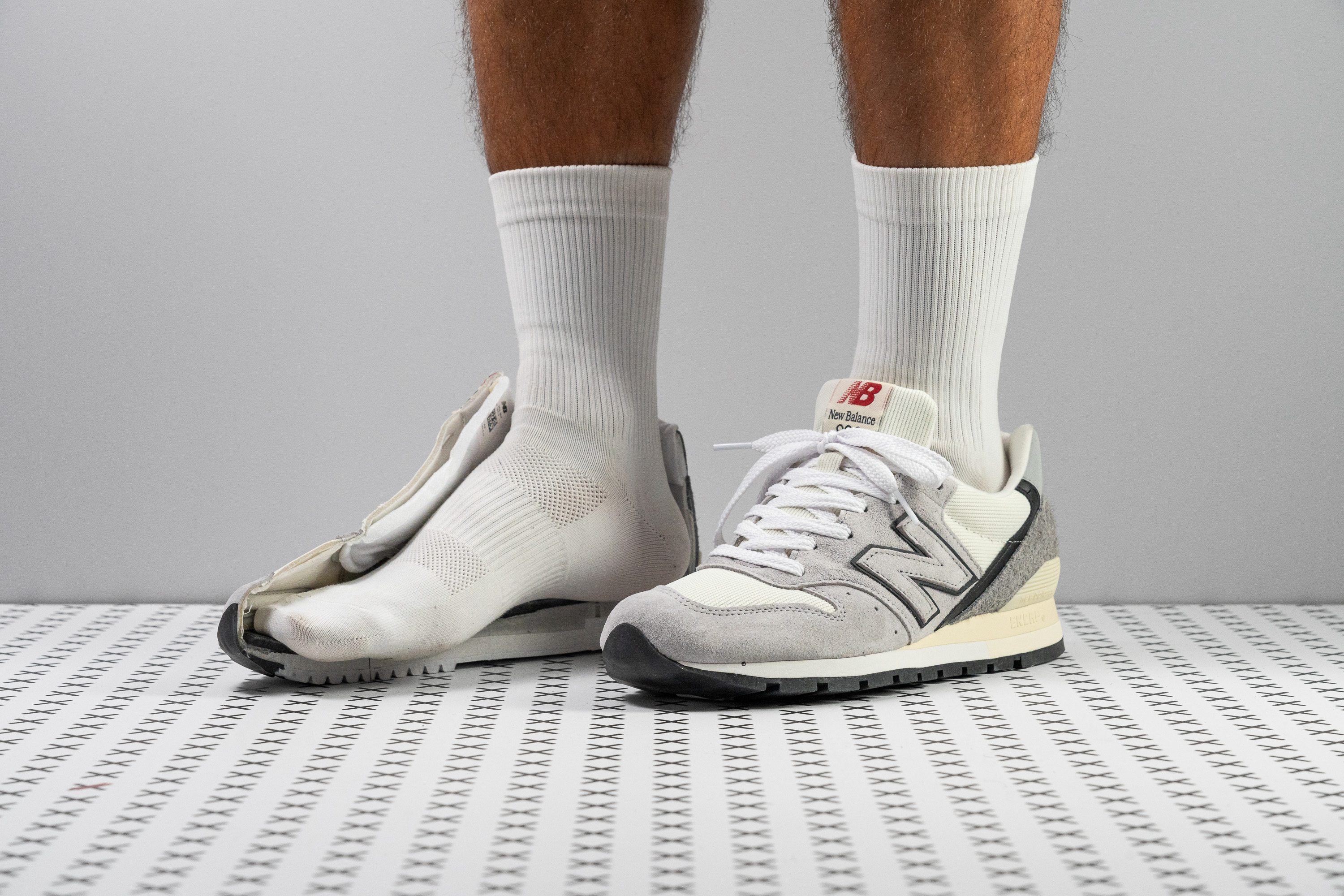Our verdict
Pros
- All-time popular New Balance design
- Suitable for all-day wear
- Long-lasting structure
- Fantastic breathability
- On the lighter side
- Comfortable and smooth ride
- Authentic suede
- Easy to style
Cons
- Really expensive
- Not supportive for overpronation
Audience verdict
Comparison
The most similar trainers compared
+ + Add a shoe | |||||
|---|---|---|---|---|---|
| Audience score | 88 Good! | 87 Good! | 89 Good! | 94 Superb! | |
| Price | £100 | £210 | £80 | £140 | |
| Style | ClassicSporty | ClassicSporty | RetroSporty | ClassicDadRetroSporty | |
| Shock absorption | - | - | Moderate | High | |
| Energy return | - | - | Moderate | Low | |
| Traction | - | - | Moderate | High | |
| Breathability | Breathable | Breathable | Breathable | Breathable | |
| Weight lab | 13.8 oz / 390g | 13.9 oz / 393g | 11.1 oz / 315g | 14.1 oz / 401g | |
| Size | True to size | True to size | True to size | True to size | |
| Midsole softness | Firm | Balanced | Firm | Firm | |
| Material | LeatherMeshSuede | LeatherMeshSuede | LeatherMesh | Mesh | |
| Season | SpringFall | SpringFall | SpringFall | SpringFall | |
| Inspired from | Running | Running | Running | Running | |
| Width / fit | Medium | Medium | Medium | Medium | |
| Toebox width | Medium | Medium | Medium | Medium | |
| Leather/suede quality | - | - | - | Real suede | |
| Toebox durability | Decent | Decent | Decent | Decent | |
| Heel padding durability | Decent | Bad | Decent | Bad | |
| Outsole durability | Good | Good | Bad | Good | |
| Heel stack lab | 34.8 mm | 34.1 mm | 35.8 mm | 37.1 mm | |
| Stiffness | Stiff | Moderate | Moderate | Moderate | |
| Tongue padding | Average | Average | Average | Average | |
| Drop lab | 14.3 mm | 14.5 mm | 15.6 mm | 11.5 mm | |
| Forefoot | 20.5 mm | 19.6 mm | 20.2 mm | 25.6 mm | |
| Removable insole | ✓ | ✓ | ✓ | ✓ | |
| Heel tab | None | None | None | Extended heel collar | |
| Torsional rigidity | Moderate | Moderate | Moderate | Moderate | |
| Heel counter stiffness | Flexible | Moderate | Stiff | Flexible | |
| Reflective elements | ✓ | ✓ | ✗ | ✓ | |
| Closure | Laces | Laces | Laces | Laces | |
| Top | Low top | Low top | Low top | Low top | |
| Ranking | #96 Bottom 20% | #106 Bottom 12% | #88 Bottom 27% | #18 Top 15% | |
| Popularity | #71 Bottom 41% | #66 Bottom 45% | #69 Bottom 42% | #18 Top 15% |
Who should buy
We believe the New Balance 996 deserves a spot on your trainers collection if you are:
- A NB lover who just can't get enough of their ever-popular design.
- Looking for a breathable and comfortable shoe to walk around town when temperatures start going up.
- A pair with a long-lasting structure and straightforward aesthetics that matches most of your outfits.
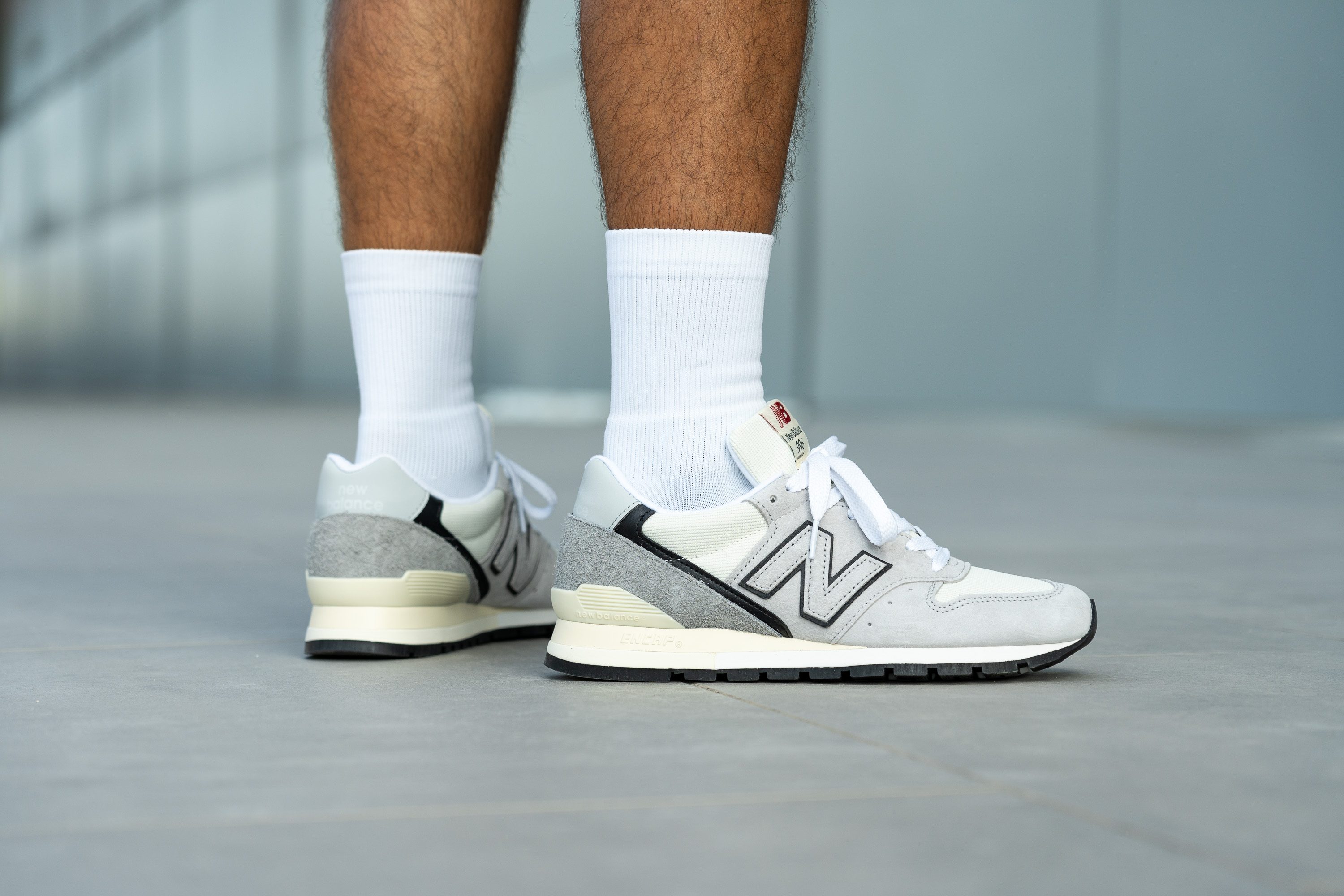
Who should NOT buy
If you're on a budget, it might be better not to dream about the 996. Its sky-rocketing price point can be a breaking-point for many, and we totally understand it! As a more affordable alternative, we've got the New Balance 574, which has a similar design and vibe.
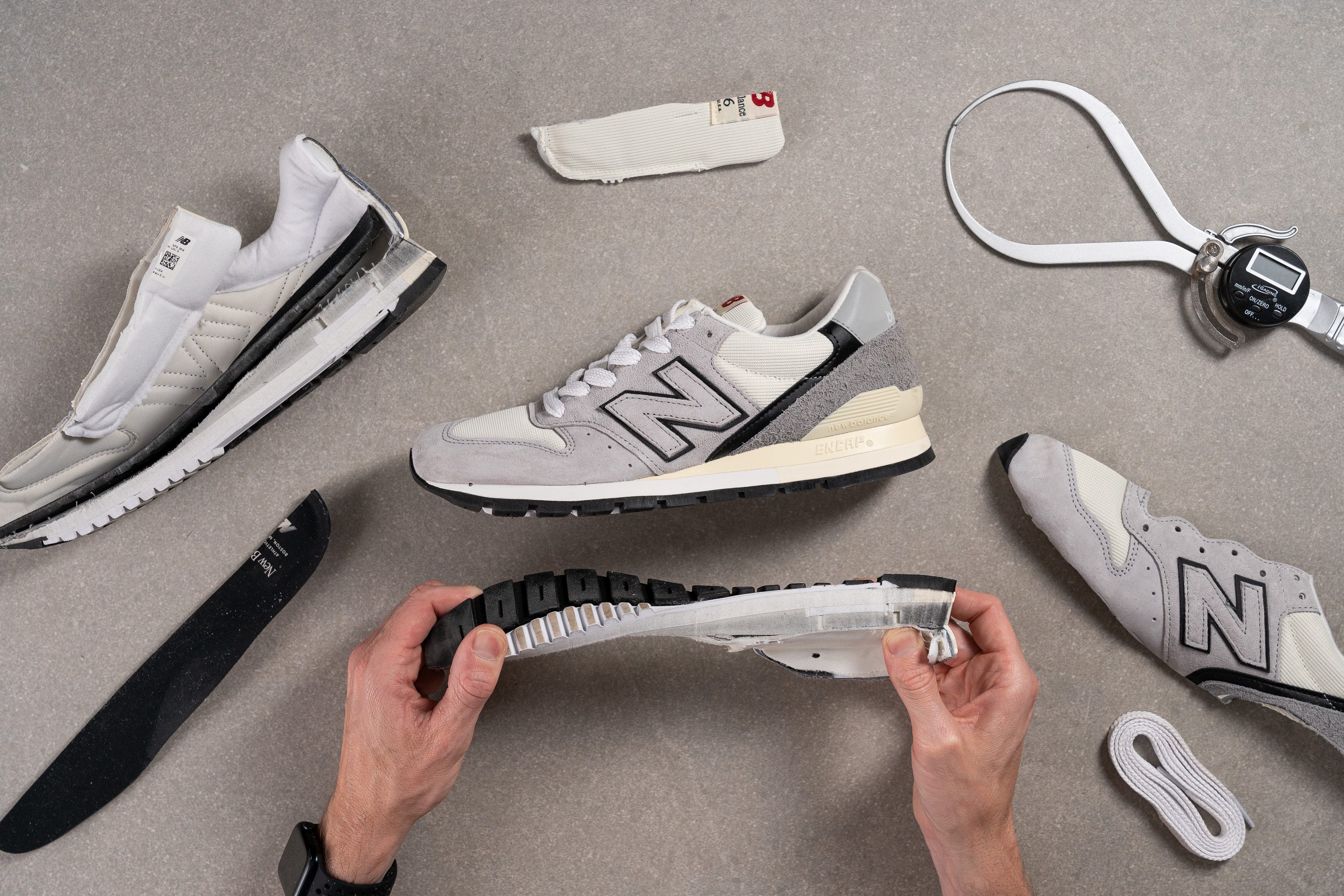
Cushioning
Heel stack
The 996's heel stack goes all the way up to 34.8 mm, which is around 15% higher than average.
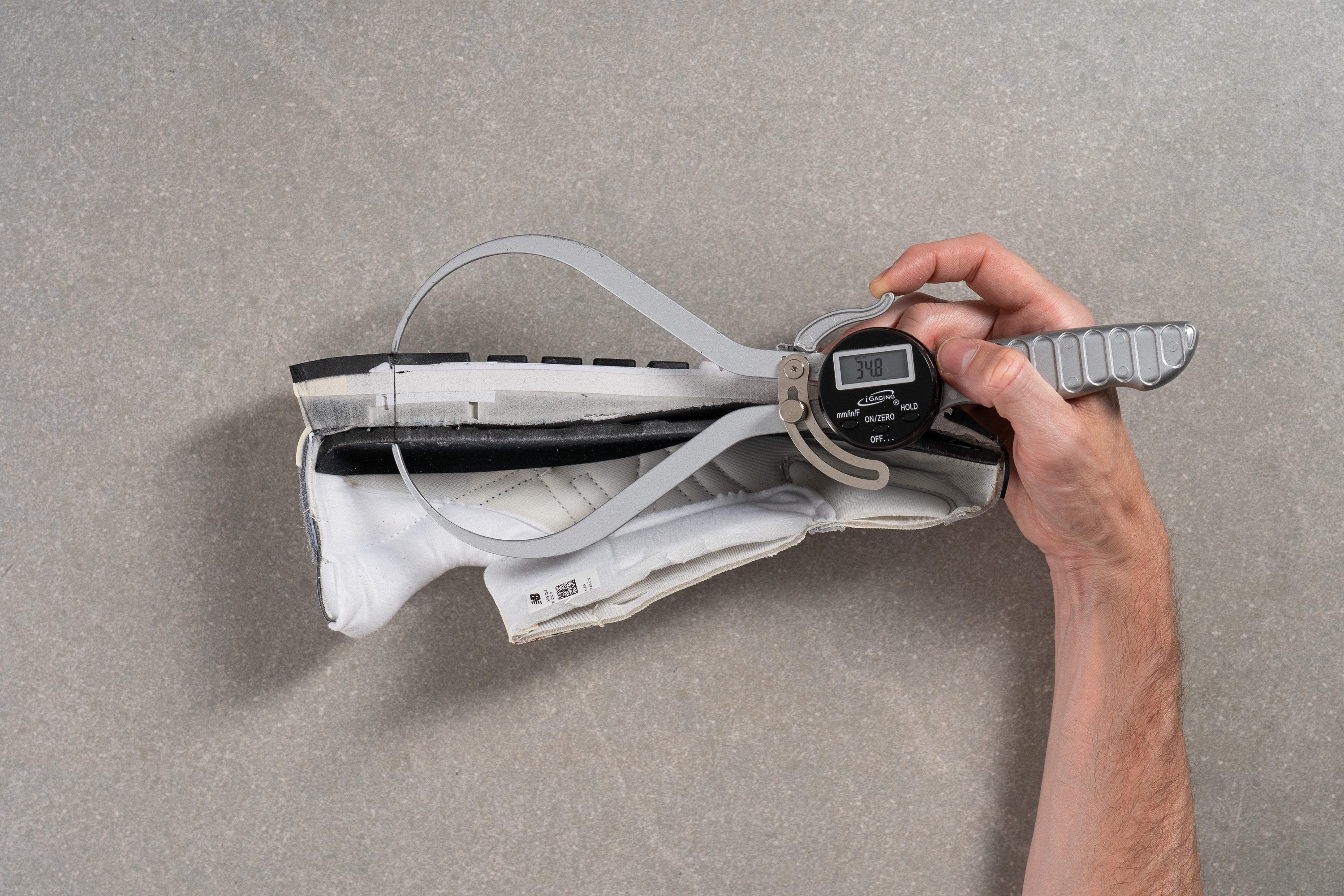
This translated into a comfortable ride separated from the harshness of urban surfaces, protecting our feet from any obstacles they could encounter.
| 996 | 34.8 mm |
| Average | 30.7 mm |
Forefoot stack
The forefoot stack had the same idea, as it's also higher than average.
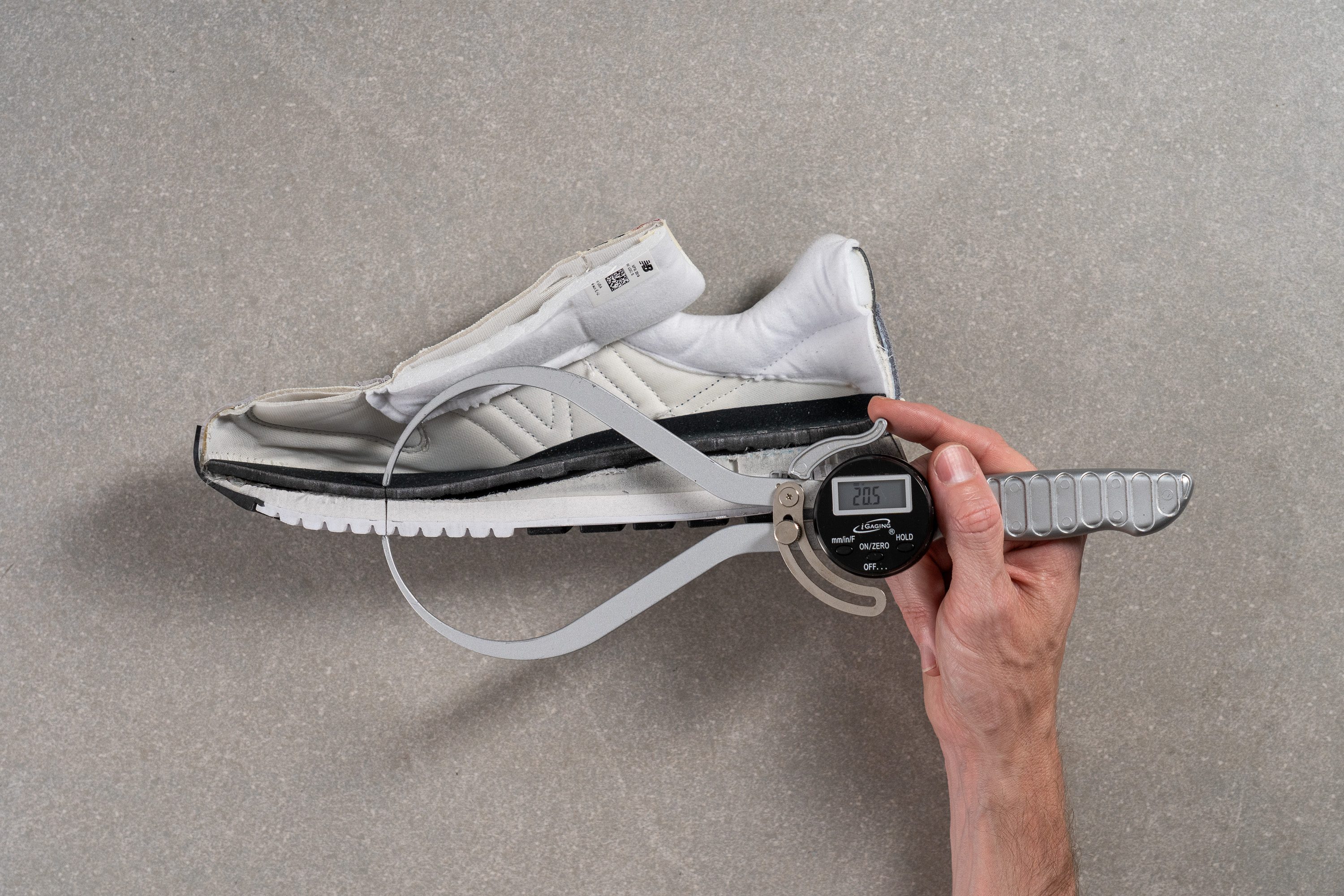
At 20.5 mm according to our calliper, our toes were fairly separated from the ground, making us enjoy showing off this NB around town even more!
| 996 | 20.5 mm |
| Average | 19.5 mm |
Drop
The forefoot and heel stacks are quite different regarding height, which translated into a drop of 14.3 mm.
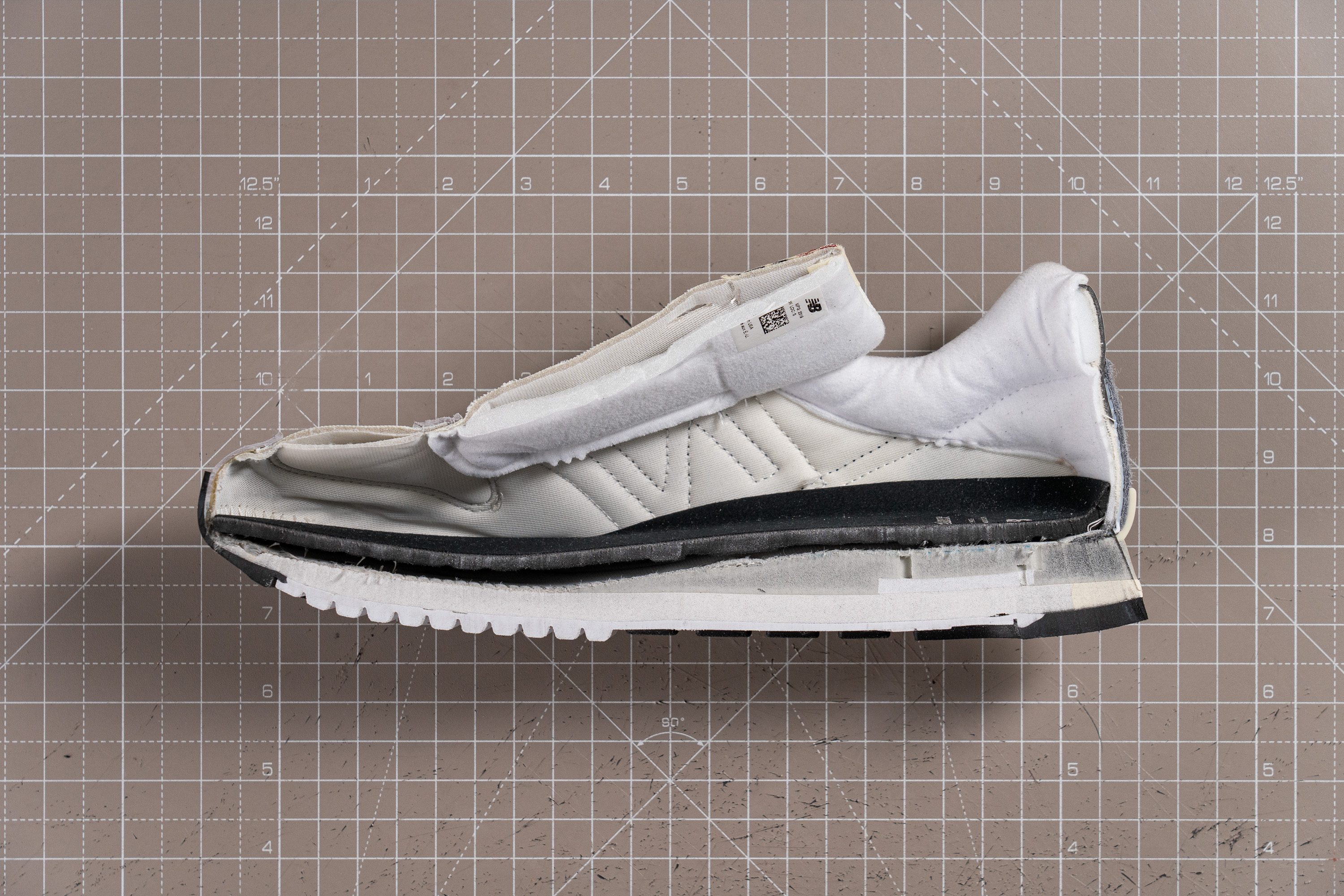
This is neither good nor bad, you'll just feel the heel is slightly higher than the forefoot, but that's all! We didn't have to get used to it or anything like that. Oh, and it's definitely not uncomfortable!
| 996 | 14.3 mm |
| Average | 11.2 mm |
Midsole softness
It's very important for us to cut every shoe in half. This way we can see what each of them hides on the inside!
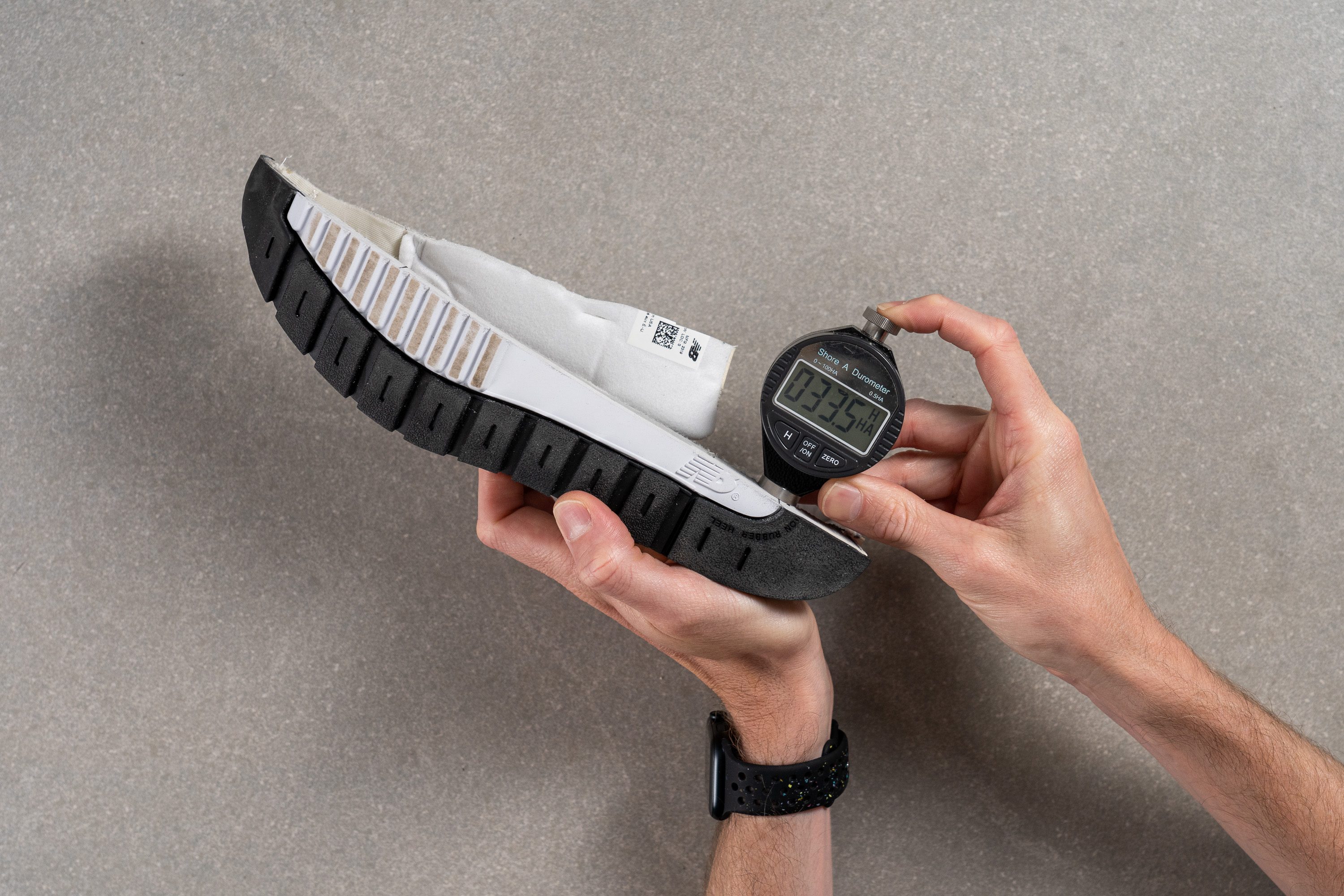
The ENCAP midsole cushioning of the 996 returned 33.5 HA when we pressured our durometer against it. This is slightly harder than average, but our feet didn't really feel it.
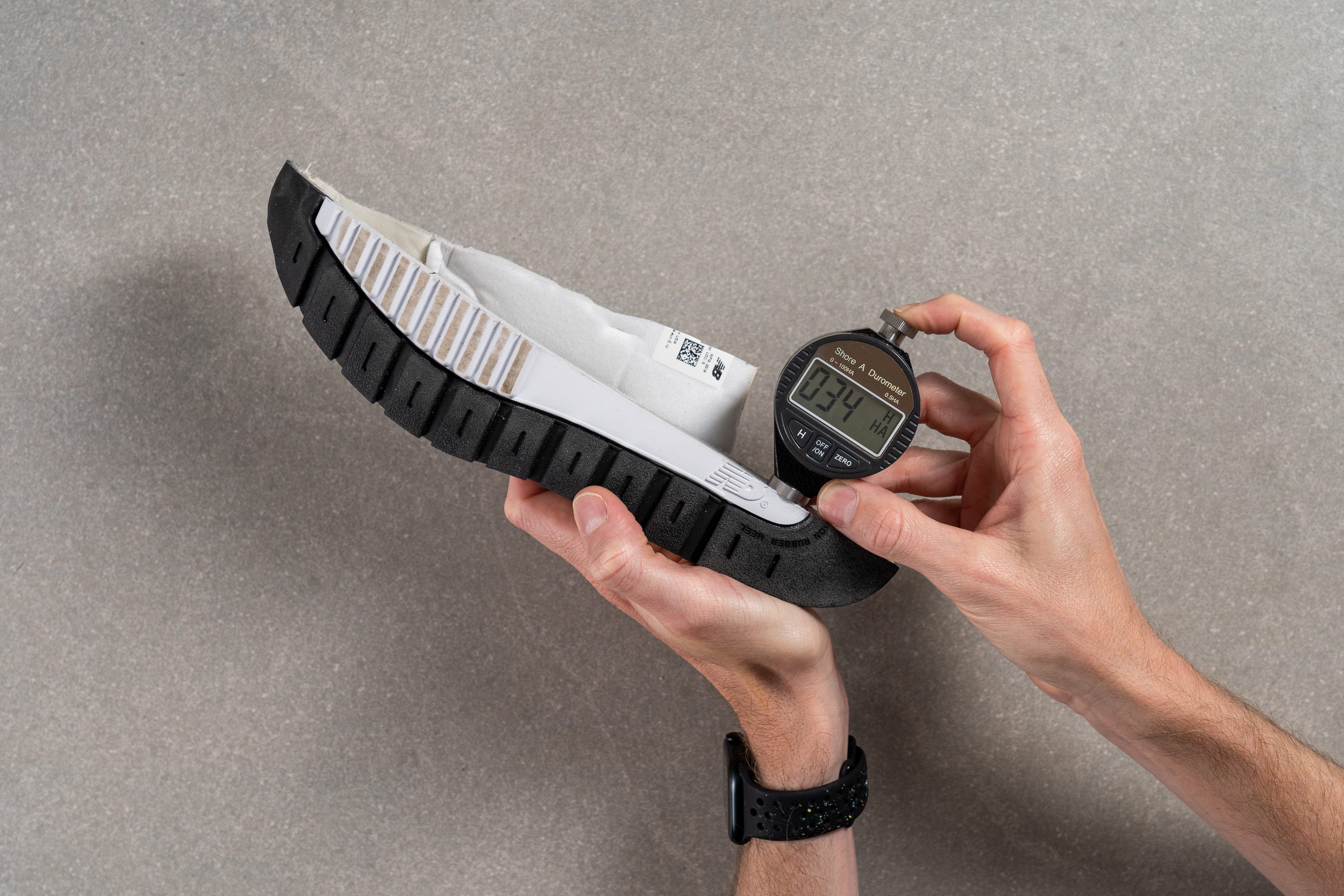
There's also a durable polyurethane foam right next to it that got 34 HC on our durometer, which is basically the same score.
| 996 | 33.5 HA |
| Average | 28.6 HA |
Size and fit
Size
New Balance 996 fits true to size (27 votes).
Internal length
| 996 | 274.9 mm |
| Average | 272.3 mm |
Width / Fit
UpdatedWe found that the 996 offers a familiar and accommodating New Balance fit and the shoe's gel mould reflected that.
Measuring its widest area with a calliper, we got a standard reading of 90.9 mm. Not the roomiest but perfectly medium.
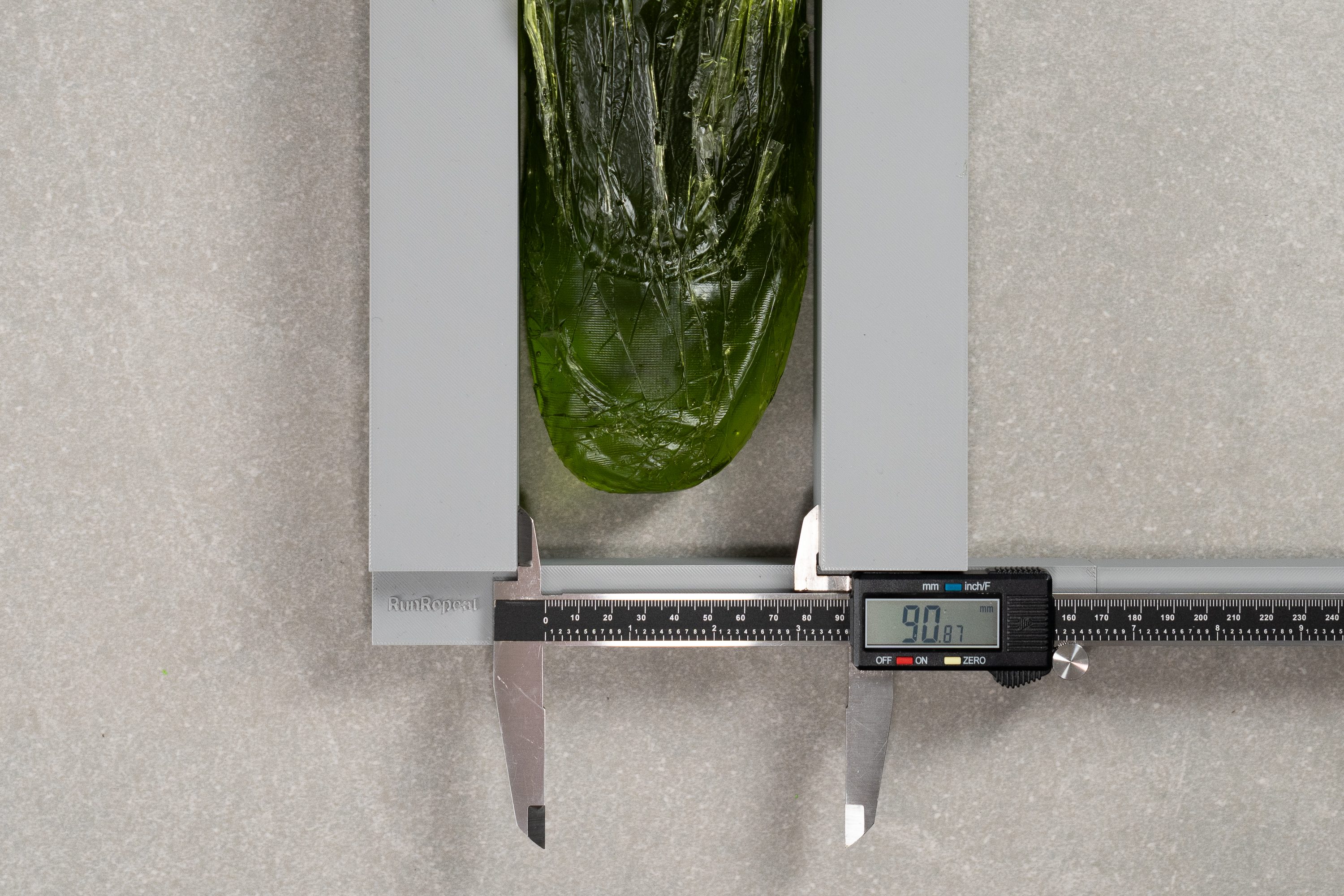
| 996 | 90.9 mm |
| Average | 92.5 mm |
Toebox width
UpdatedIts toebox has a rounded, even somewhat squared shape, which doesn't taper or squeeze the toes. Our calliper showed an above-average width of 71.8 mm in its big toe area.
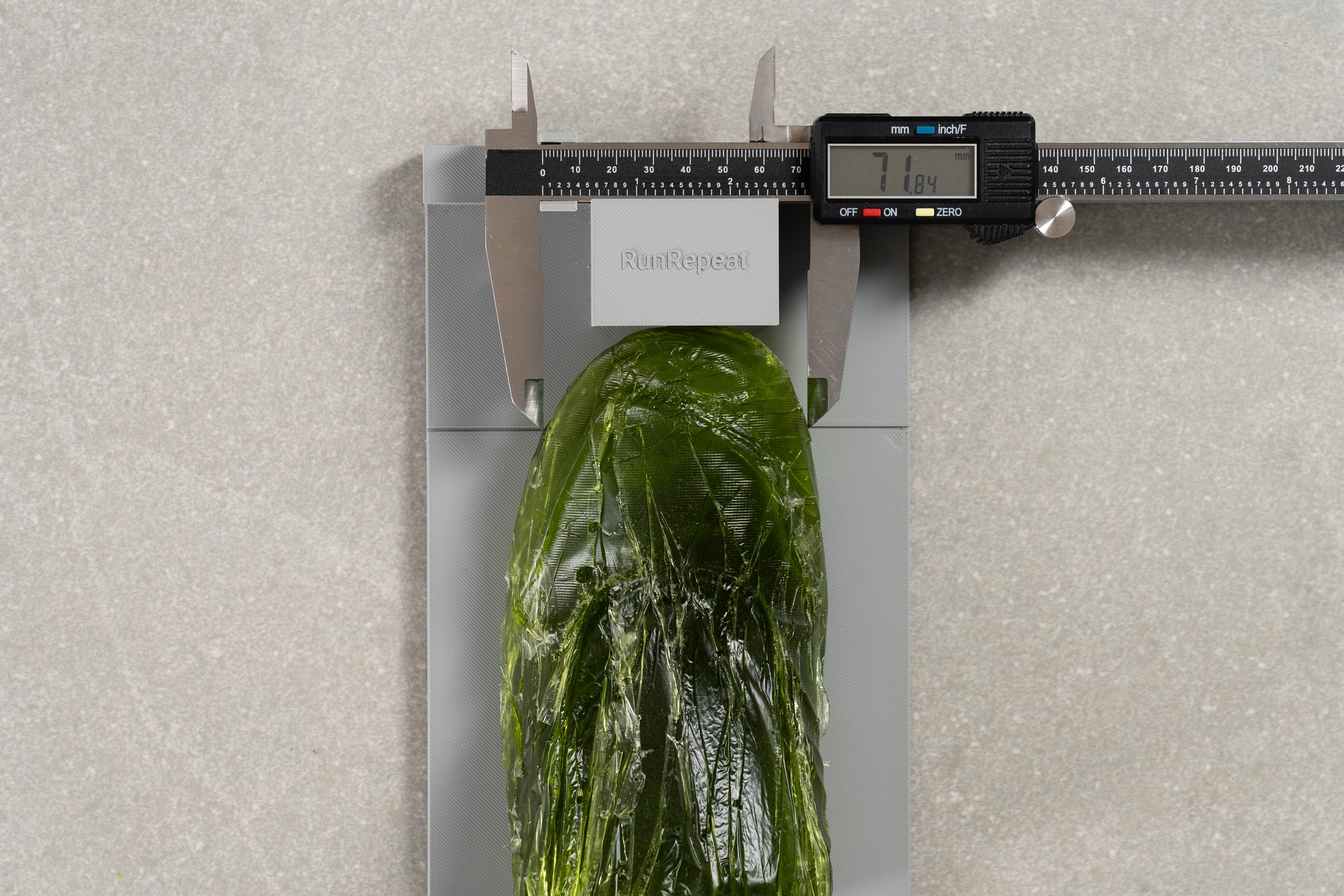
| 996 | 71.8 mm |
| Average | 68.9 mm |
Toebox height
The 996's toebox height also proved to be adequate at 26.0 mm. We experienced no pressing on the toes.
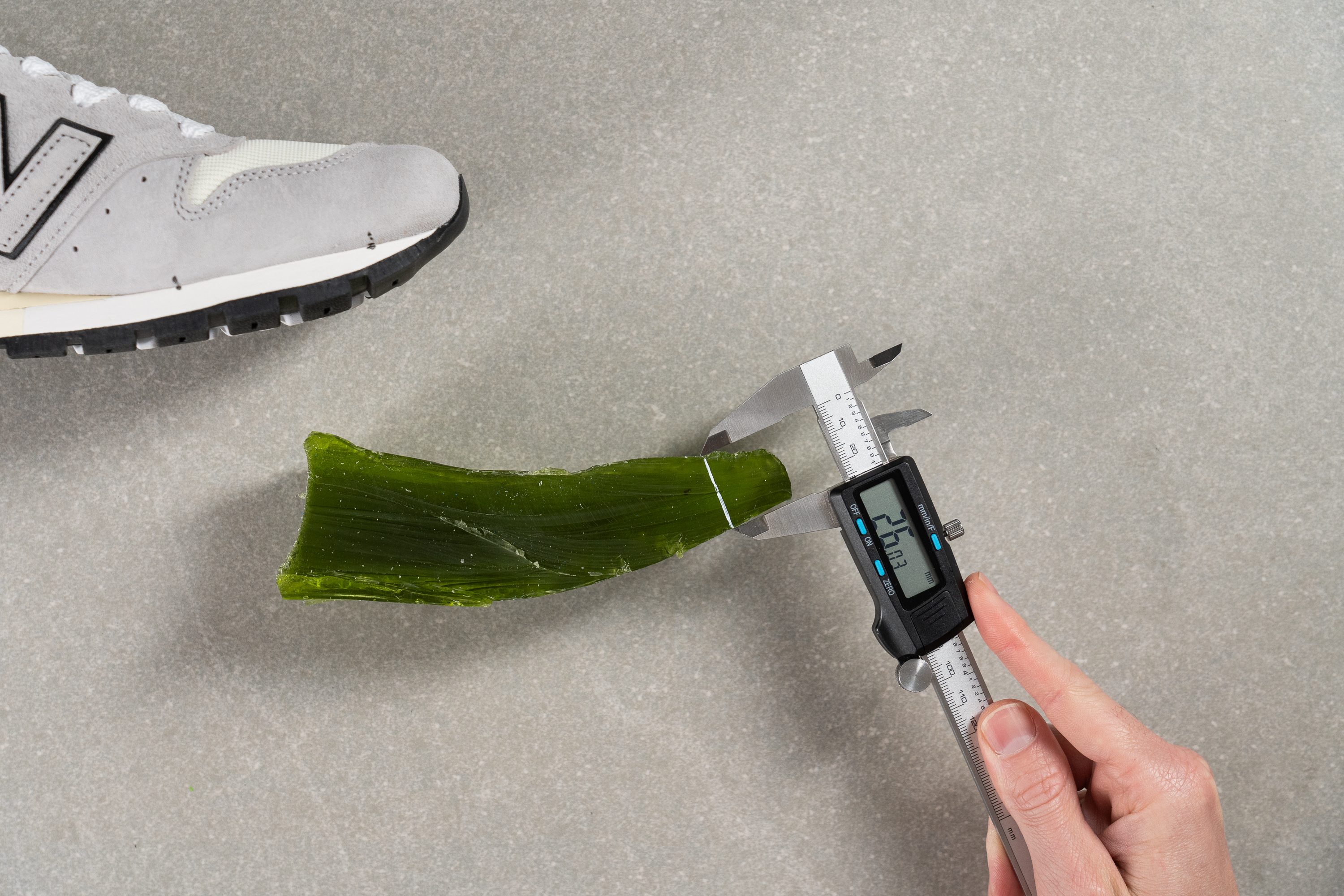
| 996 | 26.0 mm |
| Average | 27.8 mm |
Flexibility / Stiffness
The 996 would have been an FX specialist with this flexibility!
It only needed 17.3N of force to bend all the way up to 90 degrees, and our feet would nod if they could! During our wear tests, this NB moved alongside them, following every move and offering us a very comfortable and easy ride.
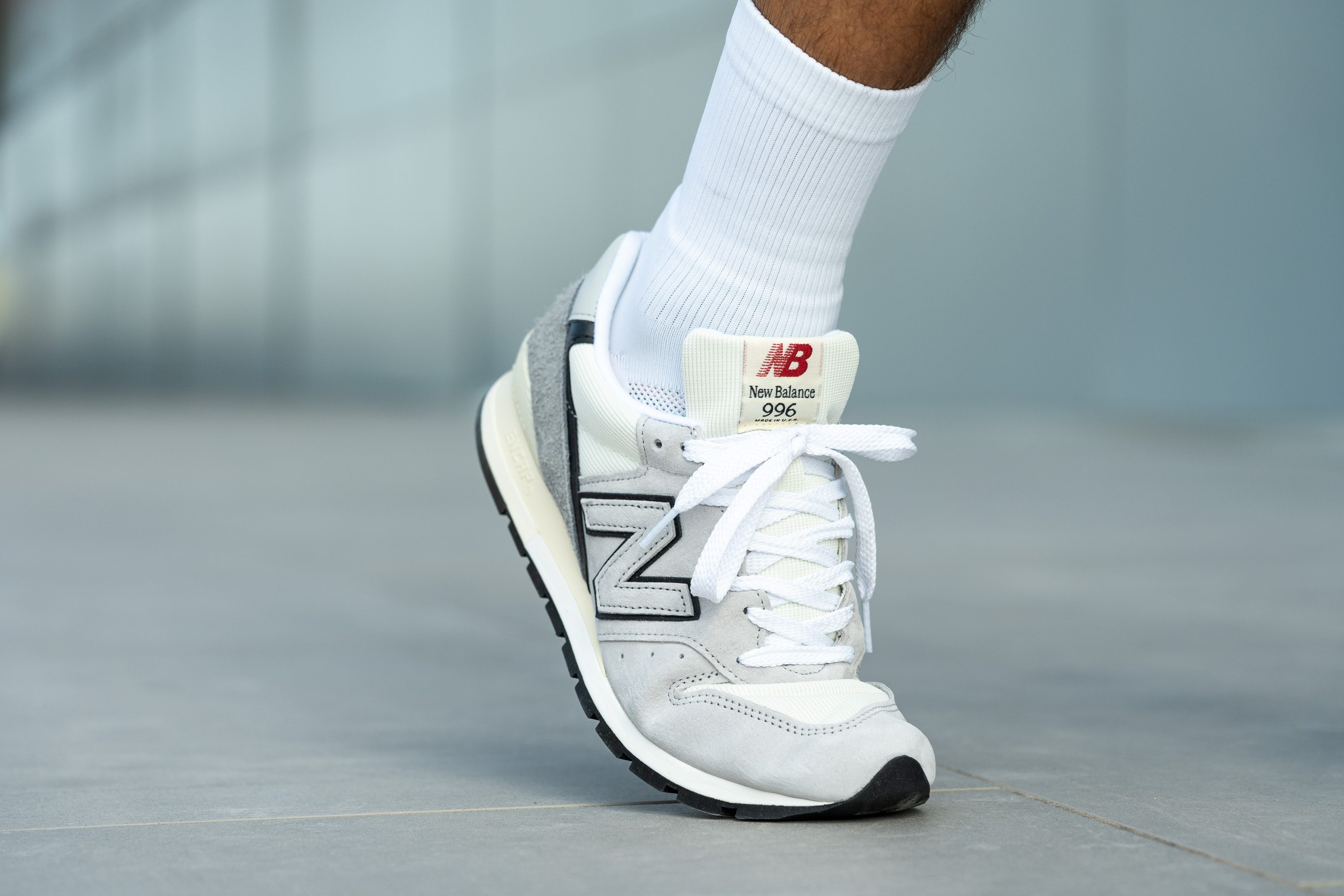
This test follows an older methodology, which is why you don't see recently tested shoes in the chart. Results from different methodologies can not be compared.
| 996 | 17.3N |
| Average | 23.3N |
Weight
Despite its thick outsole and durable materials, the New Balance 996 doesn't feel heavy on foot!
We walked around town with it enjoying its wonderful comfort, and neither did our feet get tired than expected nor did we feel this pair as a couple of ankle weights.
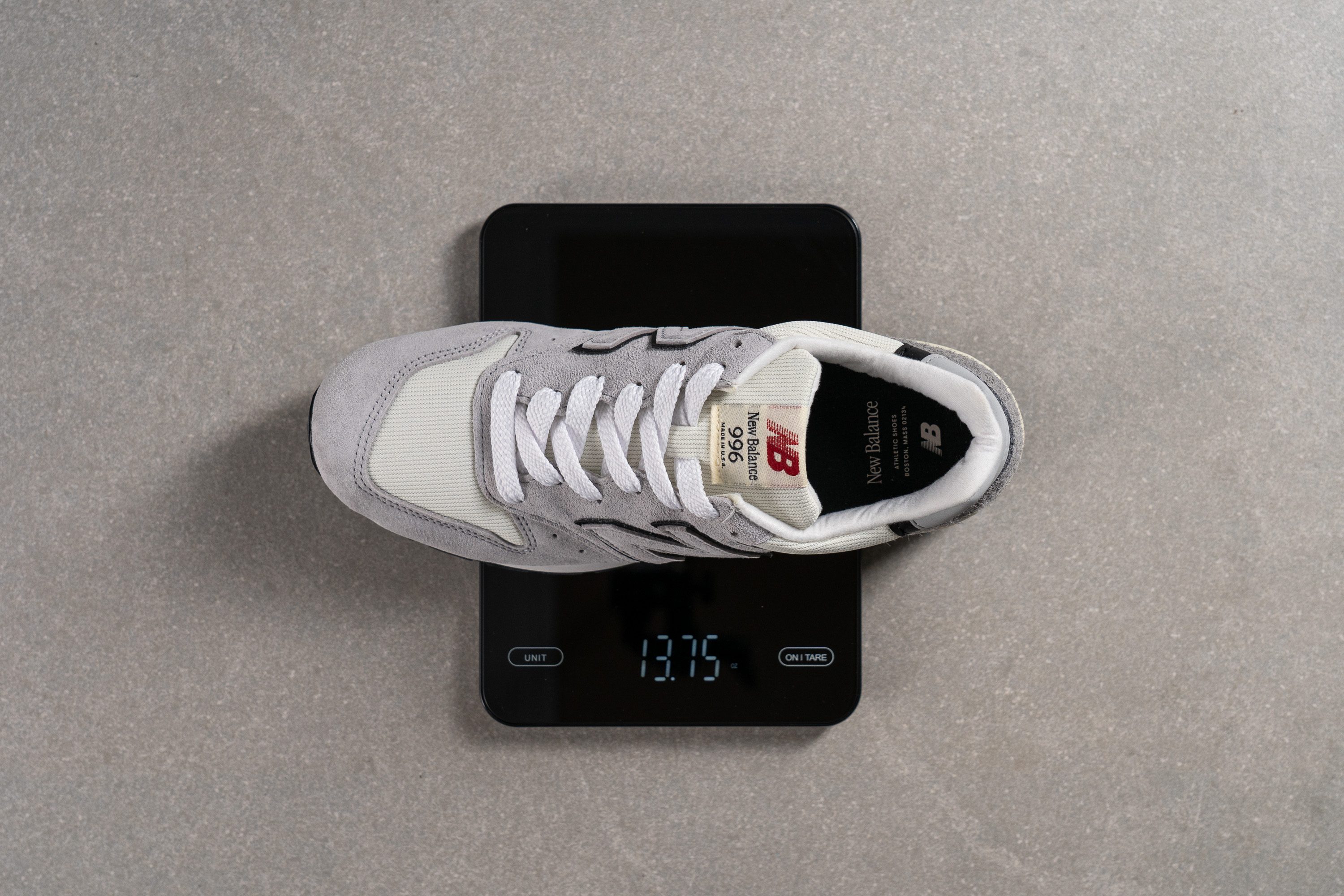
Our scale returned 13.75 oz/390.0g, which is about average.
Yeah, we can't say these are a couple of feathers, but we definitely can't complain! These trainers felt wonderful on our feet, and after all that's all that matters.
| 996 | 13.8 oz (390g) |
| Average | 13.8 oz (390g) |
Breathability
The breathability test we perform in our lab has 3 main characters: our light, the smoke machine, and a microscope.
As you can see in this first video, there are 3 round holes that let the light shine through. The rest of the upper doesn't seem to have any other big pores, but let's ask our smoke machine about its opinion.
Oh, wow! Alright, it does let the air go through, look at the toebox!
On the other hand, we have the Jordan Legacy 312, just on the right of the video. This shoe features a leather upper that traps air and moisture inside, which means it's pretty hot. Consequently, we couldn't give it any more than a 1/5 on our breathability test.
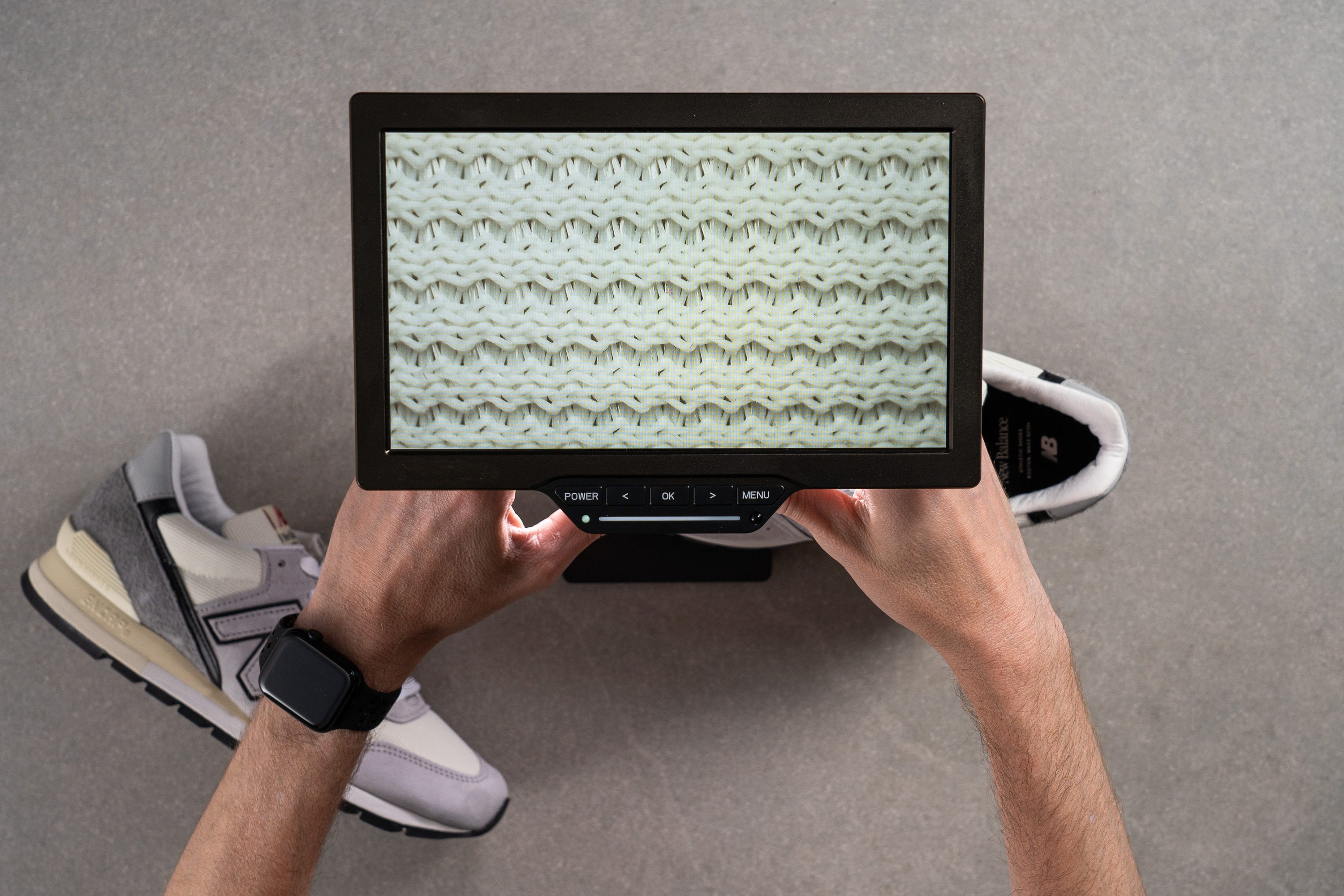
There are multiple gaps in the toebox's material, that's why it was so easy for the smoke to escape!
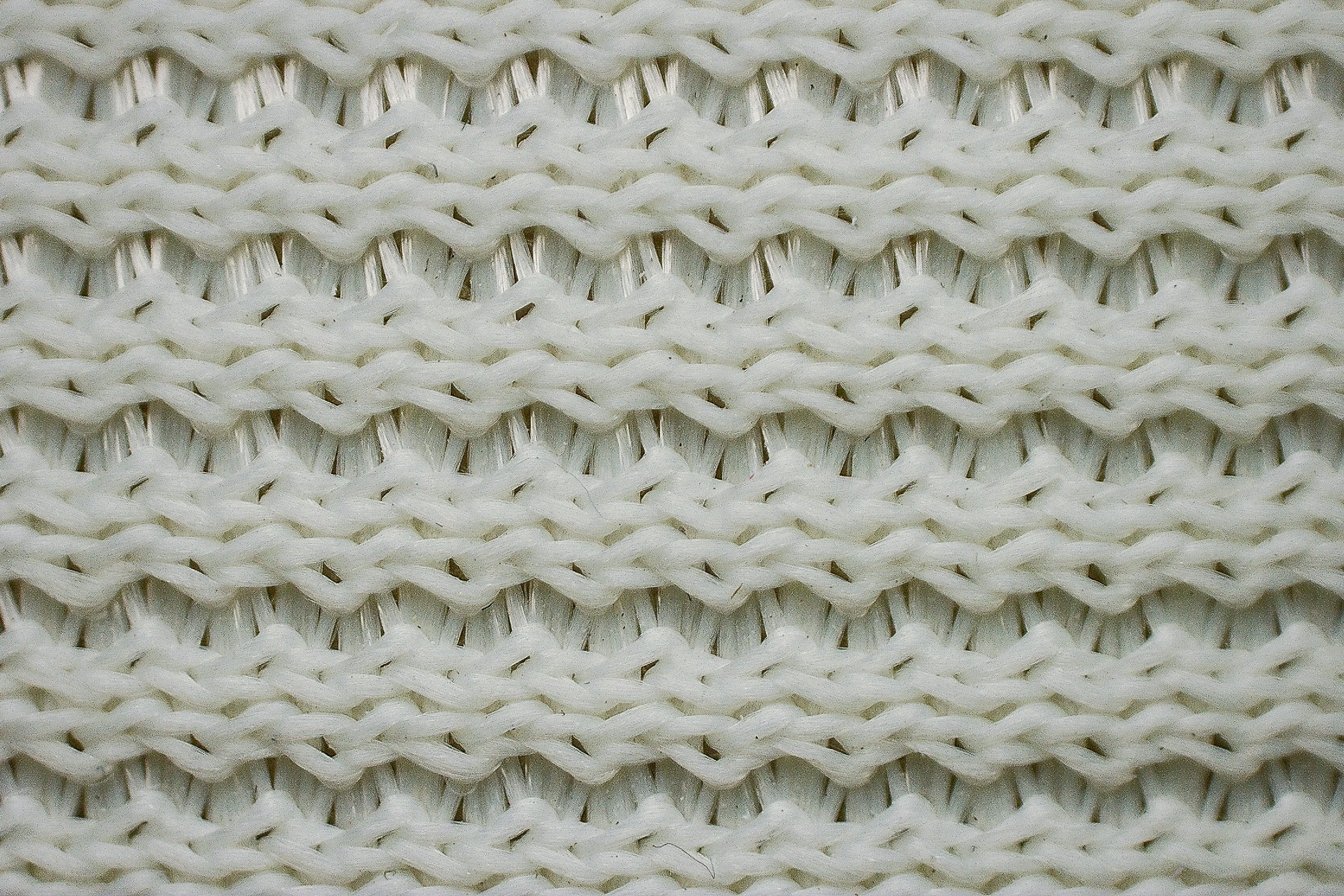
All in all, we've decided to give this NB model a solid 4/5 on our breathability test, which is a wonderful score!
| 996 | 4 |
| Average | 3 |
Stability
Lateral stability test
The lateral stability of this shoe wasn't bad at all.
We made our ankles wiggle, but we felt this shoe trying to hold them in place. If you're looking for the safest fit, you can always make use of the extra eyelet the 996 has at the top (which is a detail that we absolutely love). Its running heart never left its sneaker body!
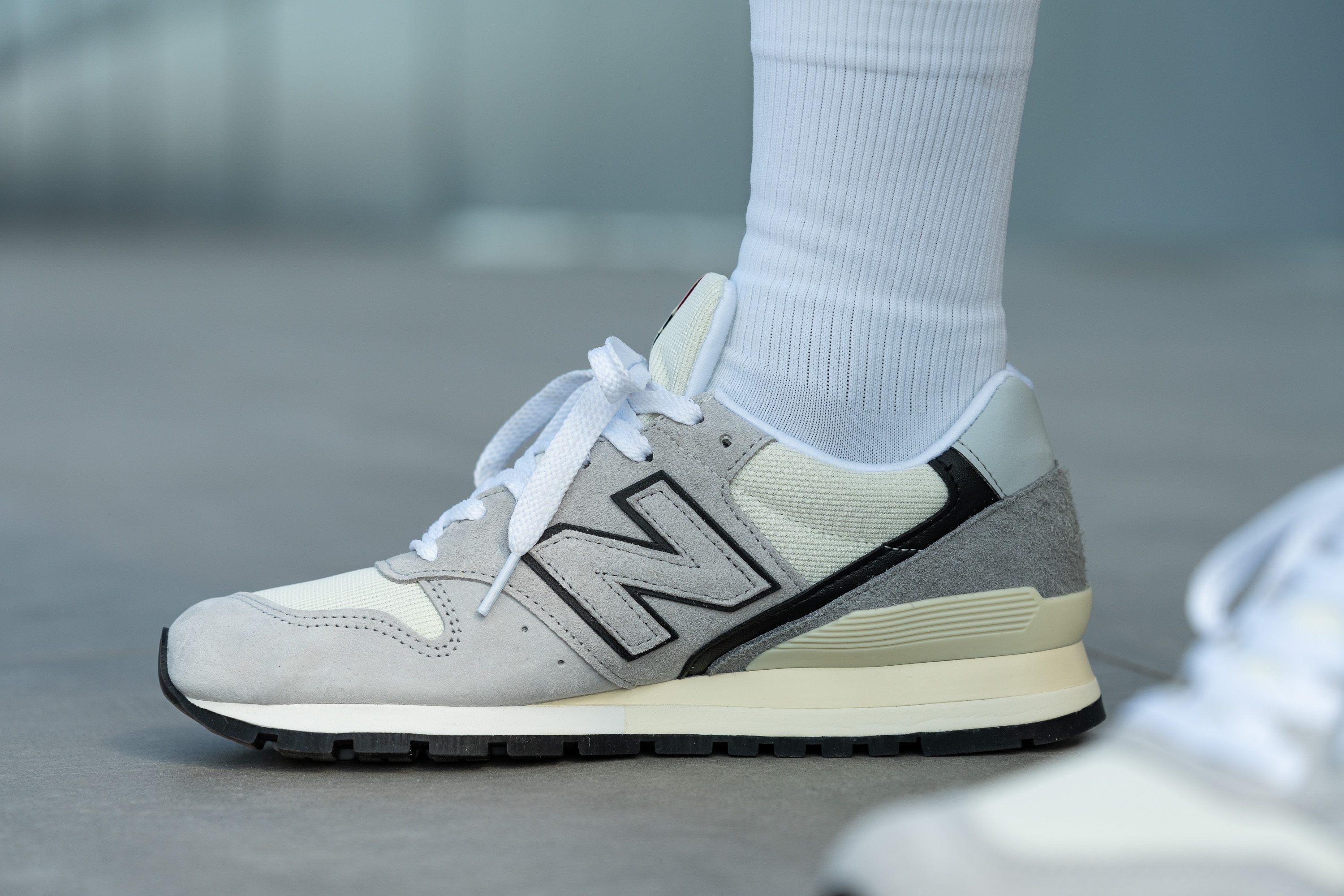
Torsional rigidity
This NB pair let us play with it without putting up much of a fight.
As you can see, its structure is more on the forgiving side, which we really appreciated as it gave us that fantastic out-of-the-box comfort.
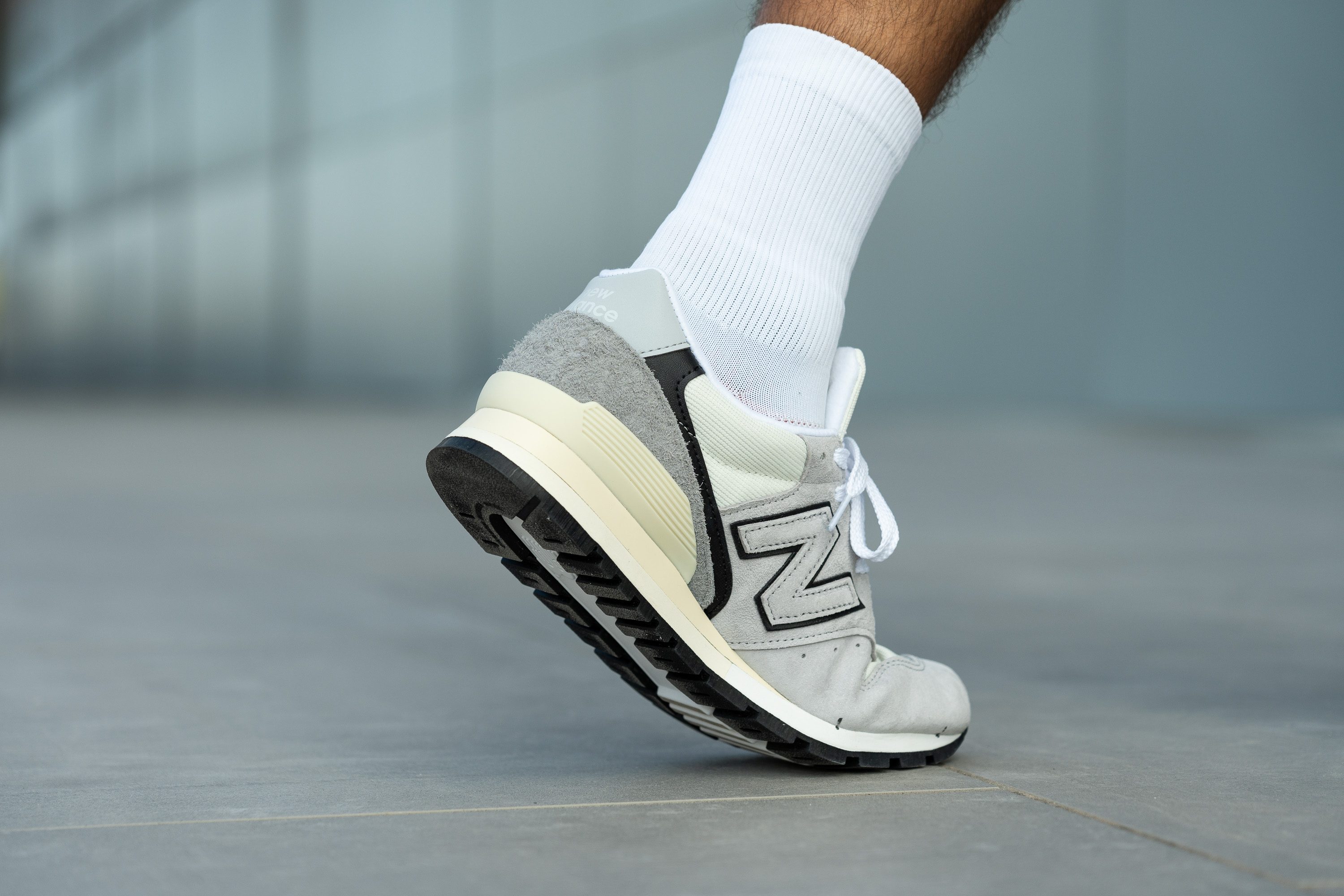
| 996 | 3 |
| Average | 3.6 |
Heel counter stiffness
The heel is also pretty pliable, as it bent easily when we pushed it down.
Once again, this translated into a comfortable fit from minute one, which is something that we really like about trainers. Because, you know, when you buy a new pair of shoes and you find out they're rubbing your heel... that's a bummer. And let's not even talk about blisters!
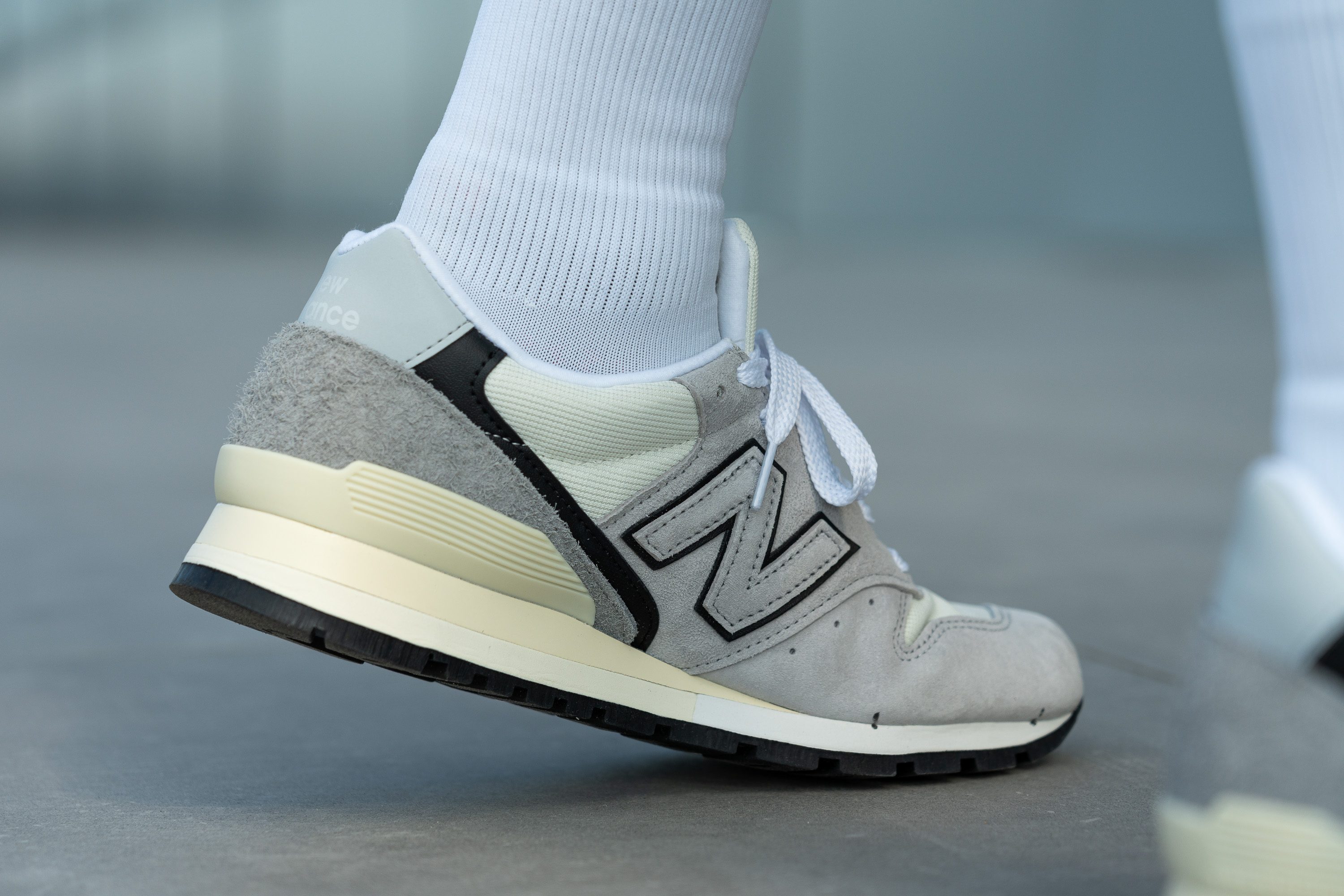
| 996 | 2 |
| Average | 3.2 |
Midsole width - forefoot
This shoe's midsole is slightly narrower than average at the forefoot.
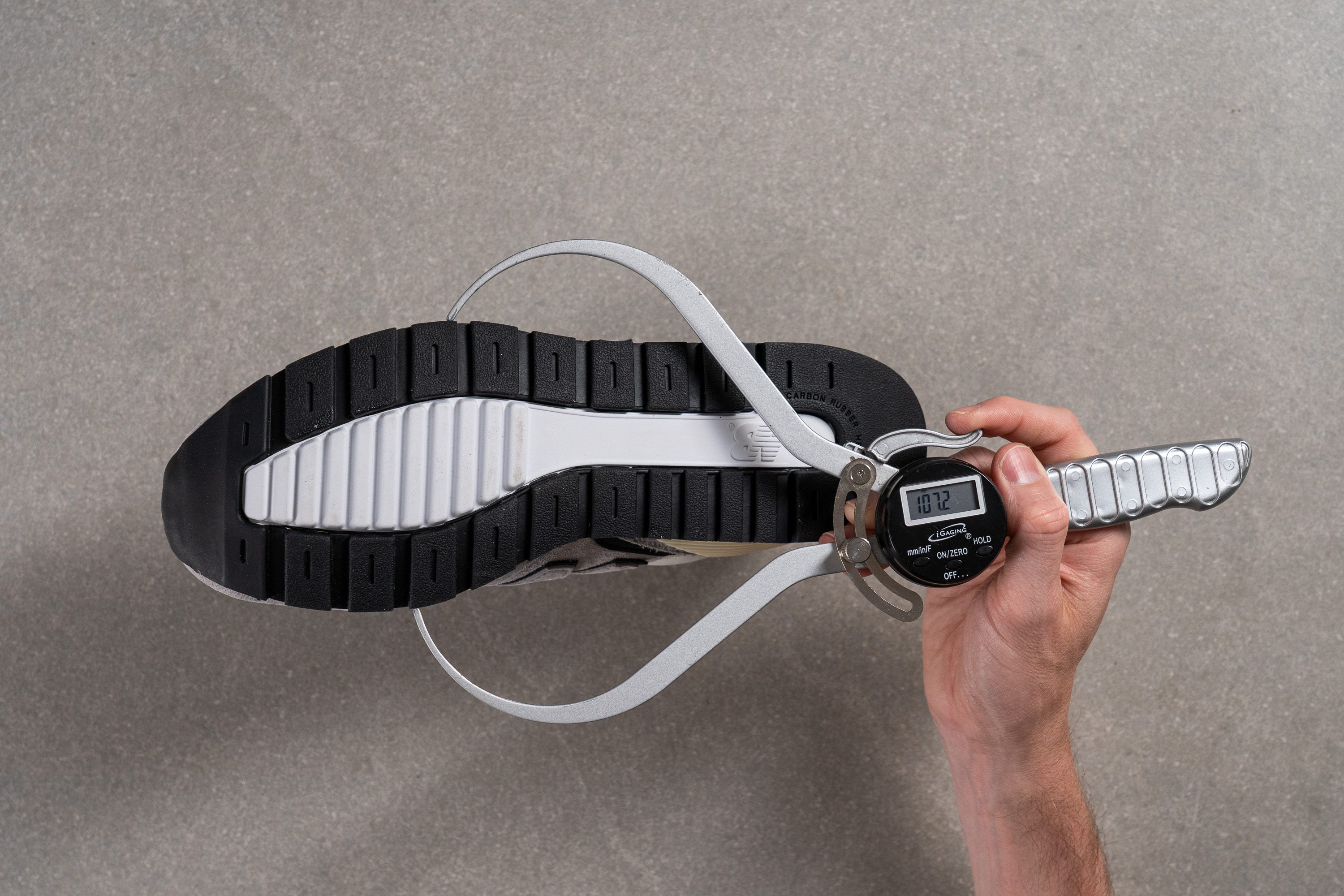
Our calliper returned 107.2 mm, but we didn't feel unstable or anything like that!
| 996 | 107.2 mm |
| Average | 108.9 mm |
Midsole width - heel
Now, the heel takes being narrow to the next level.
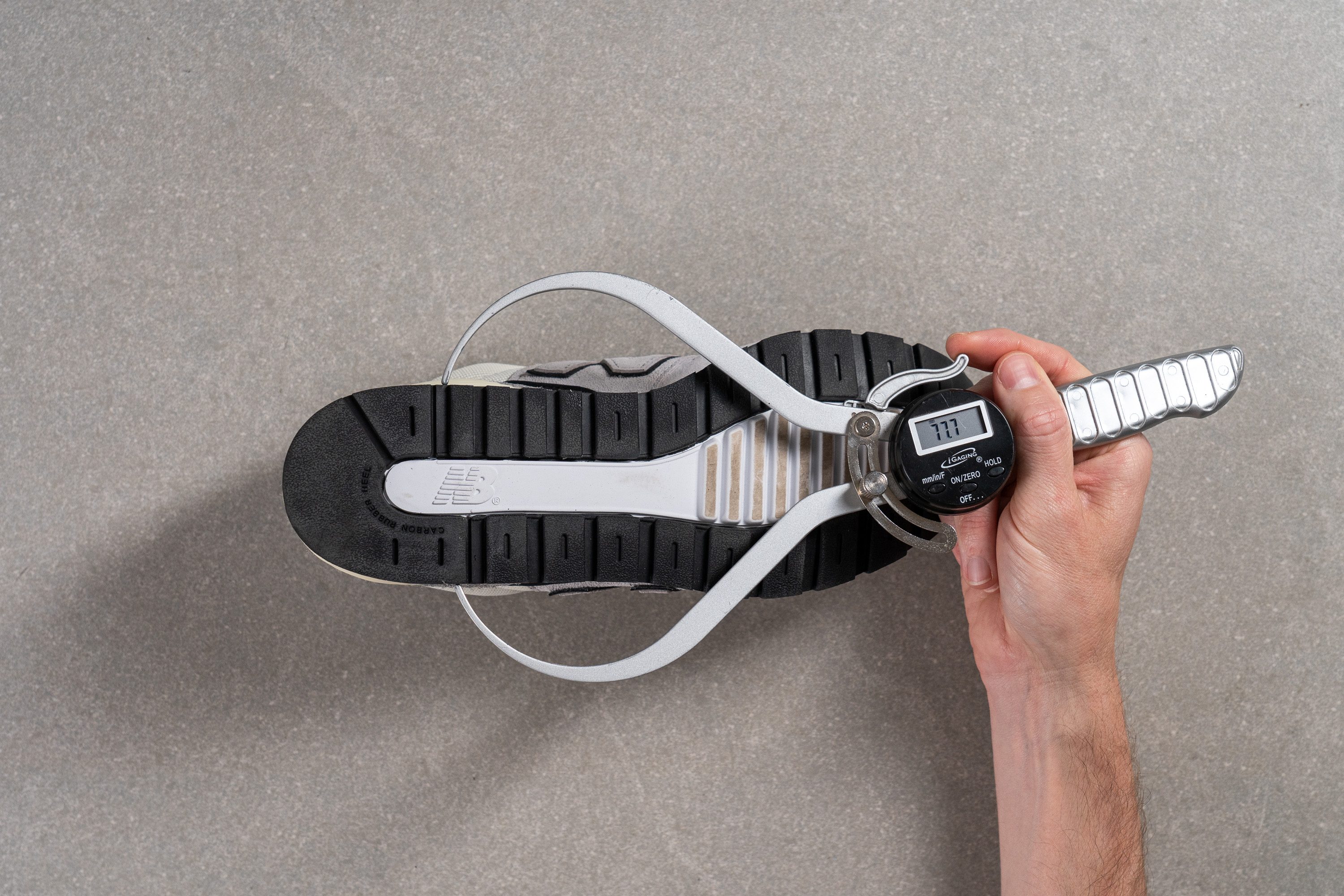
At 77.7 mm, it's a whole 6% narrower than average. It might not sound like much but, in shoes, every mm counts!
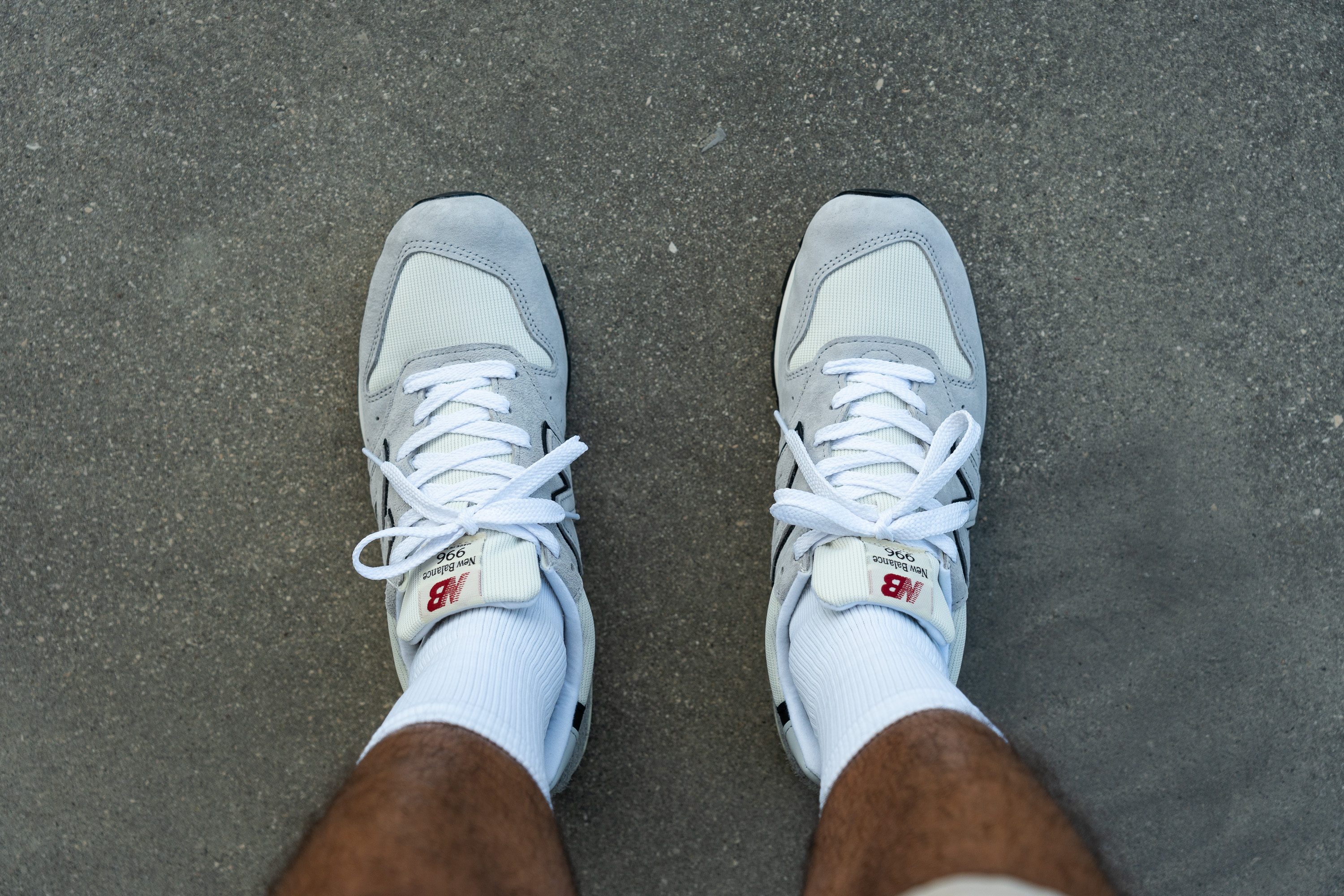
We also want to add that our standard-width feet felt okay with this, but we can see how wide-foot sneakerheads might find it slightly less comfortable than us. Just because of the narrower base for their feet!
| 996 | 77.7 mm |
| Average | 84.0 mm |
Durability
Leather/Suede quality
This hot pair is about to get even hotter! Our butane torch got the party started, so it was time to verify if the 996's materials were authentic or synthetic.
First: the suede part at the heel area. Result: authentic. It just didn't end up with a big flame and getting all melted under it!
Second: the leather part at the toebox: Result: authentic. Another big win! It withstood the heat as much as it could, without melting at all.
Third: the N logo. Result: authentic. And that makes it 3 out of 3! What a wonderful performance; we literally couldn't be any happier about these results.
Toebox durability
There are many times when shoes put breathability first, and their upper ends up being slightly less durable than average. But there's no way we can know this if we don't ask our Dremel!
Rolling at 5K RPM with 3.2N of force during 12 seconds was clearly not enough to get through the 996's tough suede overlayer.
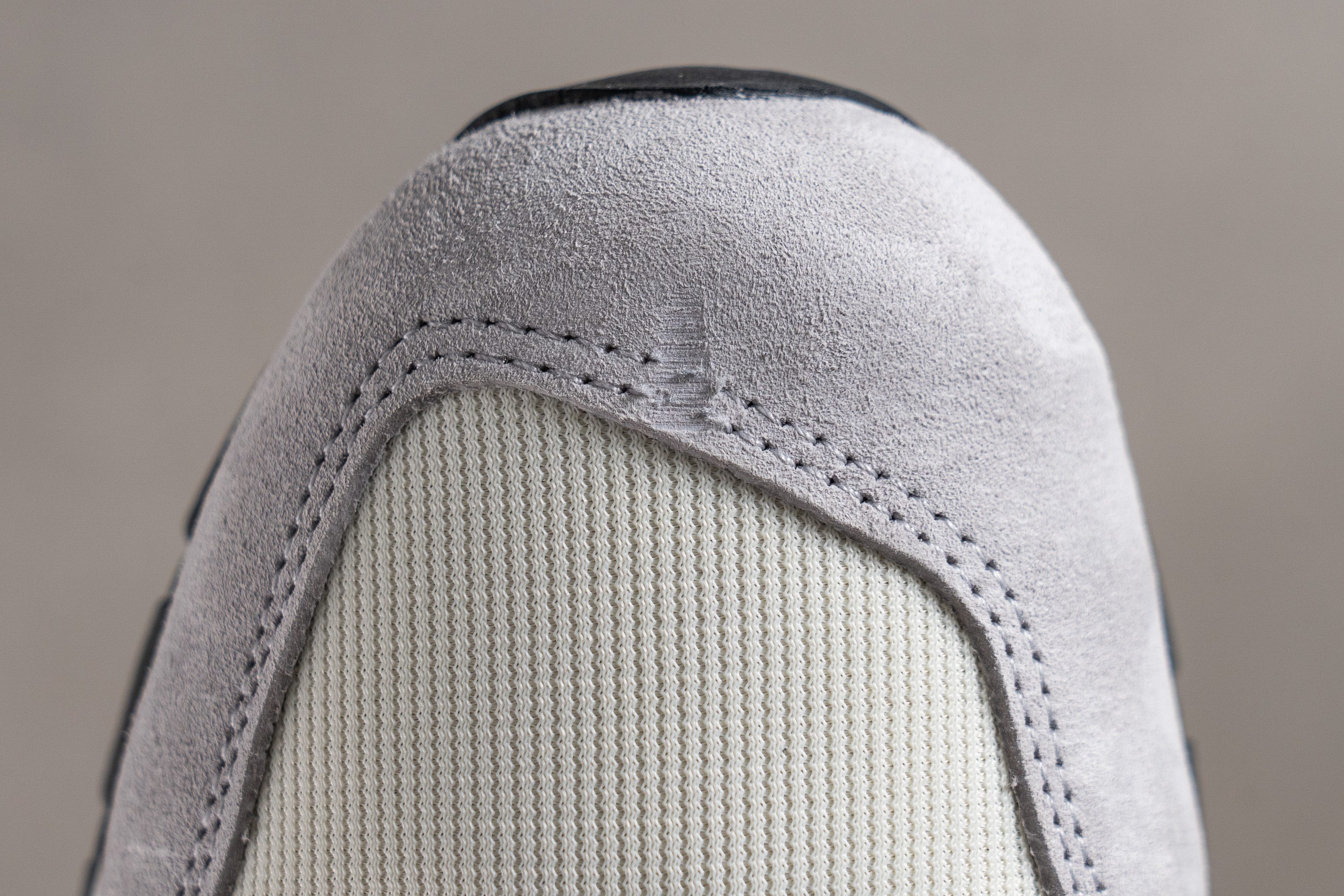
The damage can be spotted easily, that's for sure, but it didn't have a negative effect on the shoe's integrity or wearability.
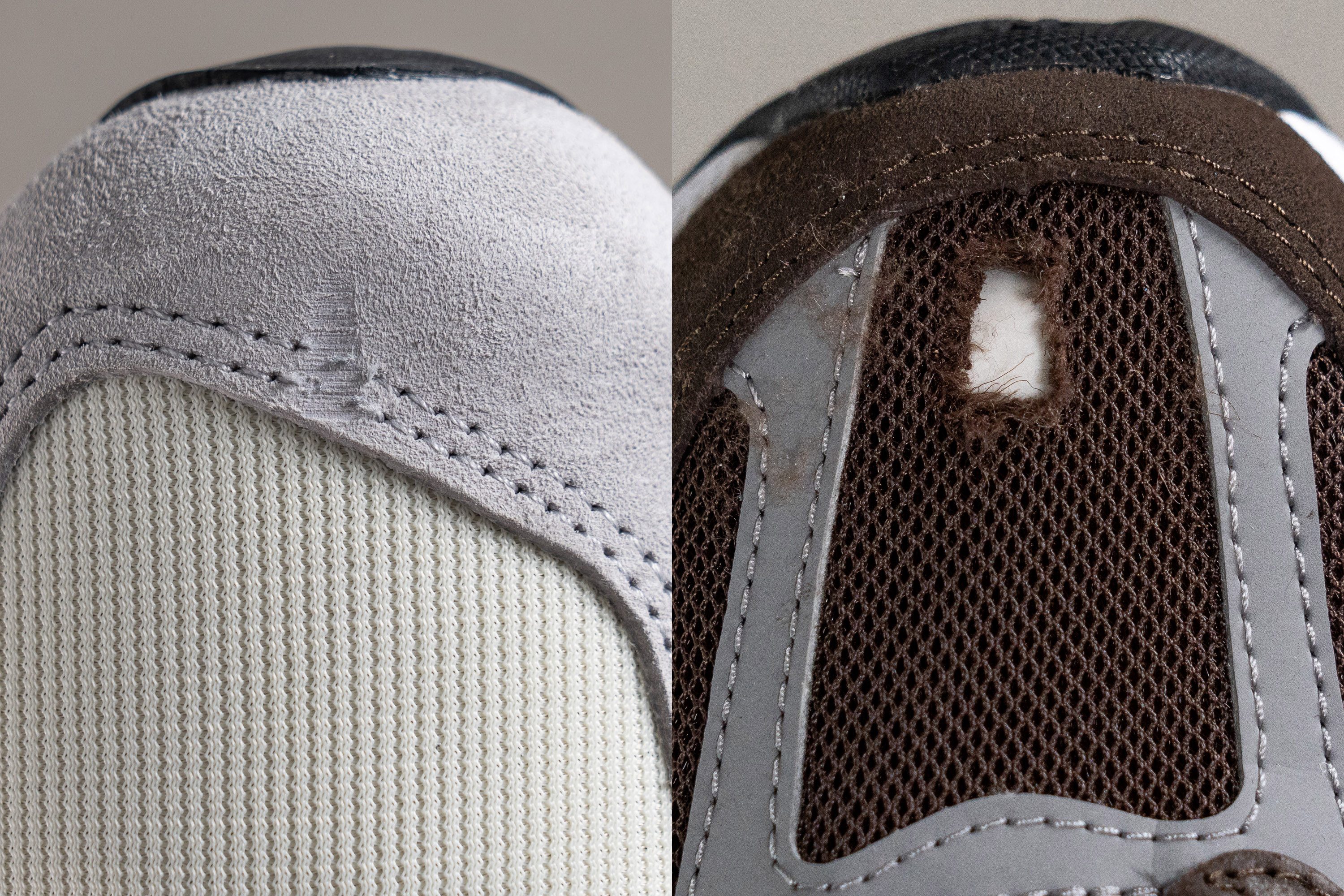
Check this comparison real quick. On the left, we have the NB 996, which scored a 4/5 on our toebox durability test. On the right, the NB 530, which only got 1/5 in this same test because the tool made a massive hole on its upper. That white thing you see over there? Yeah, that's a piece of material we put inside to appreciate how big the damage was!
| 996 | 4 |
| Average | 3.7 |
Heel padding durability
We moved the Dremel to the back of the shoe and put it right next to the heel padding. We had high hopes after seeing the previous results, but we also know this area is the most delicate one.
We drilled the back of the 996 for 4 seconds at 5K RPM and with 3.2N of force, and we can't say we were unhappy with the results.
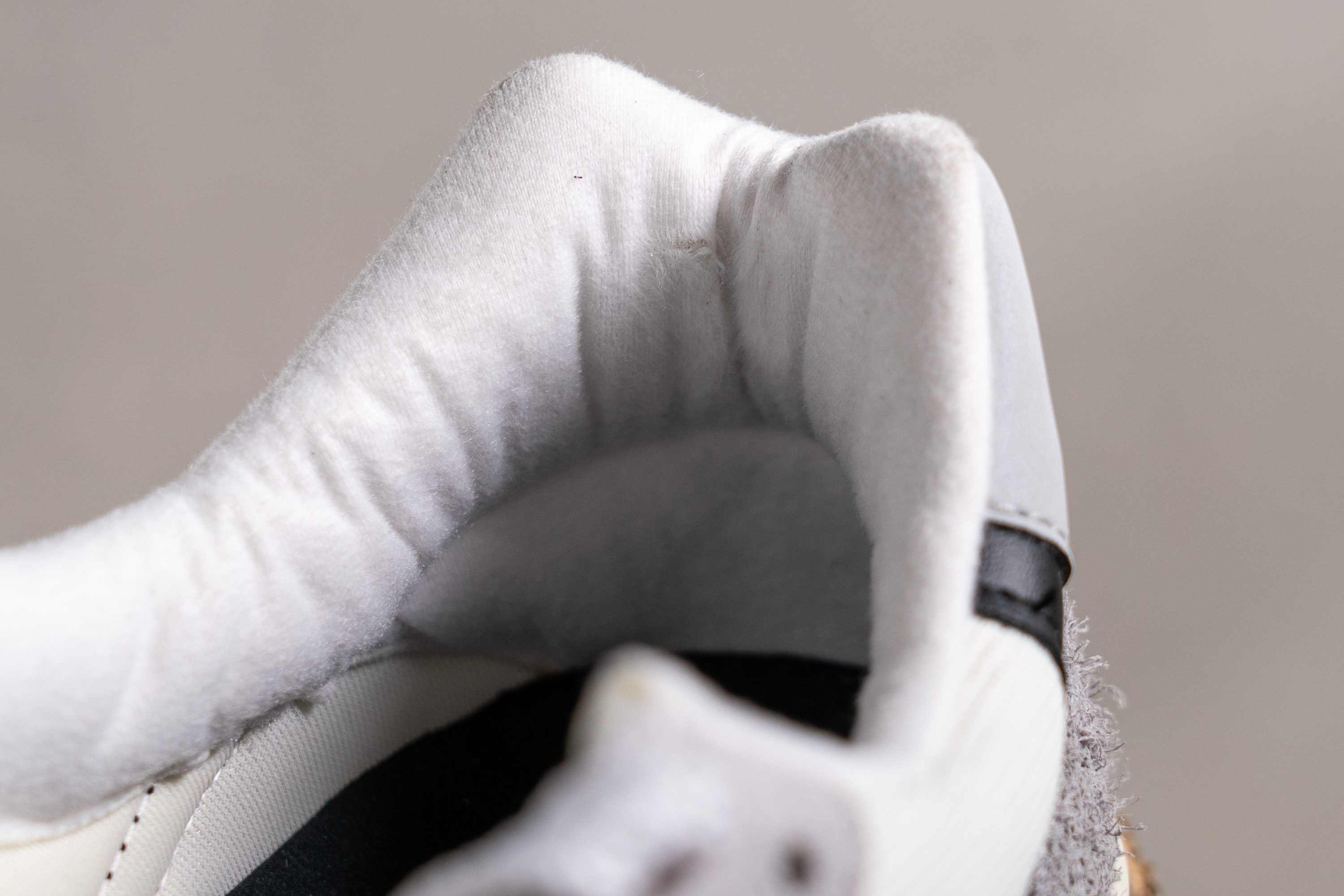
The material ended up looking a bit messy, but the Dremel didn't manage to destroy it all! If you want to see what that looks like, check the comparison below.
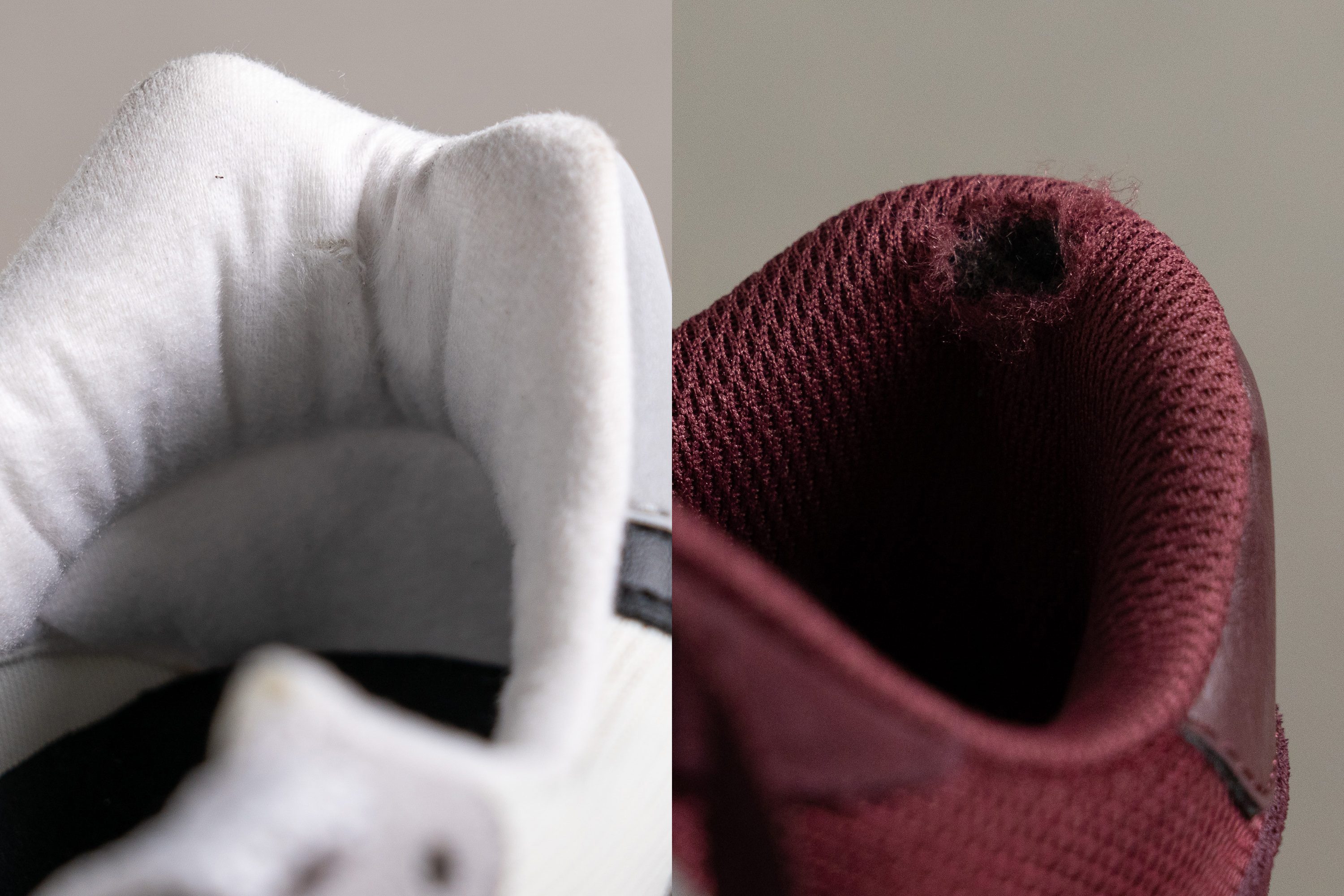
Once again, on the right we have the NB 996, which earned a 3/5 on our heel padding durability test. On the left, the NB 237, which scored a scary 1/5 on this same test.
| 996 | 3 |
| Average | 3.2 |
Outsole hardness
We pressed our durometer against the 996's outsole to check its hardness.
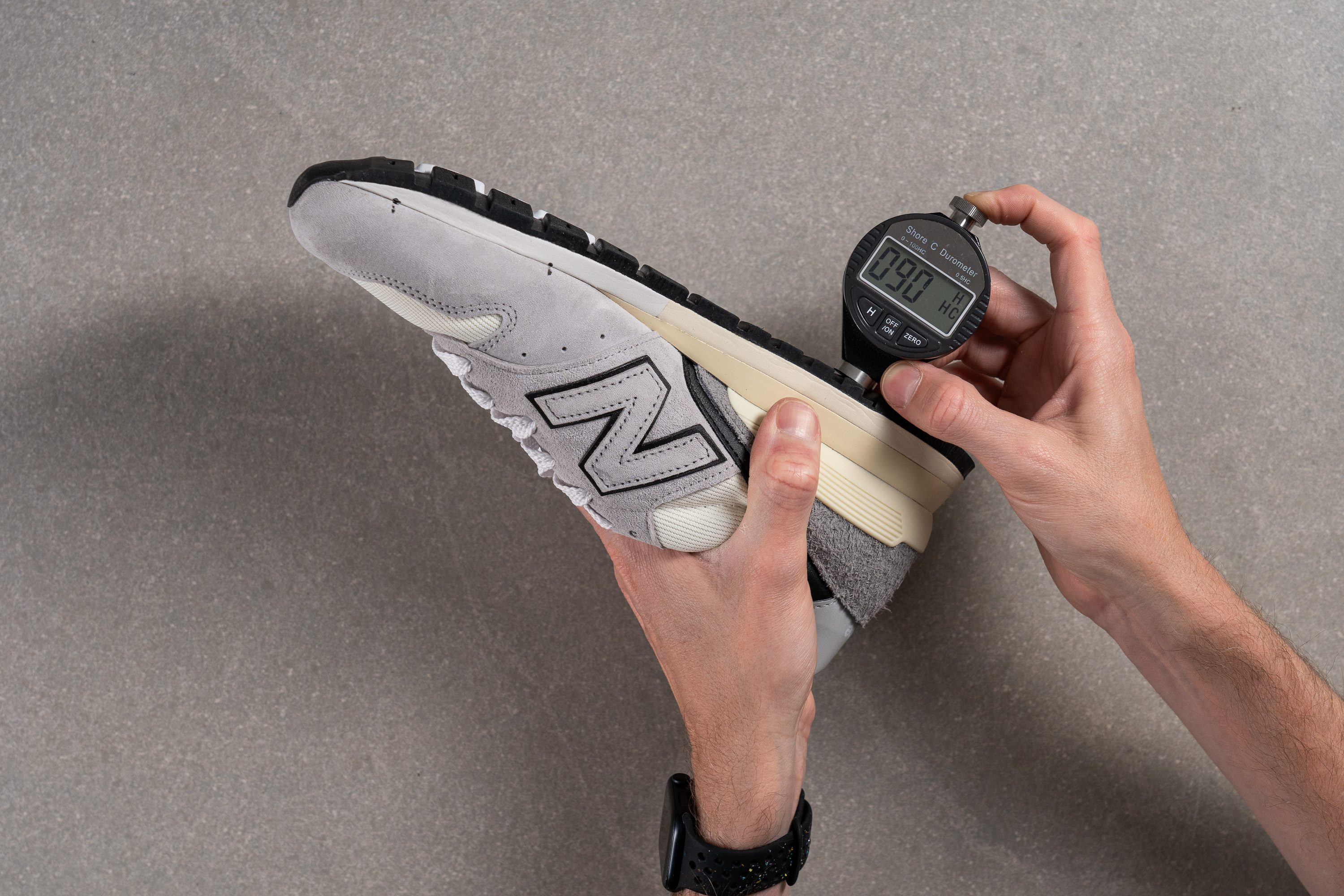
It returned 90 HC, which is a score higher than average. This should translate into great durability, but once again, we can't know this until we ask our Dremel.
So let's find out!
| 996 | 90.0 HC |
| Average | 85.7 HC |
Outsole durability
We mercilessly turned our Dremel on once again. It was the outsole's turn now, so we readjusted it at 10K RPM. This time, the test lasted 22 seconds, but we kept the force at 3.2N. We use the same parameters for every shoe, as in that way we can easily and fairly compare their results.
We trusted the 996's big lugs, and once we put the tool aside, we realised the damage was not too bad.
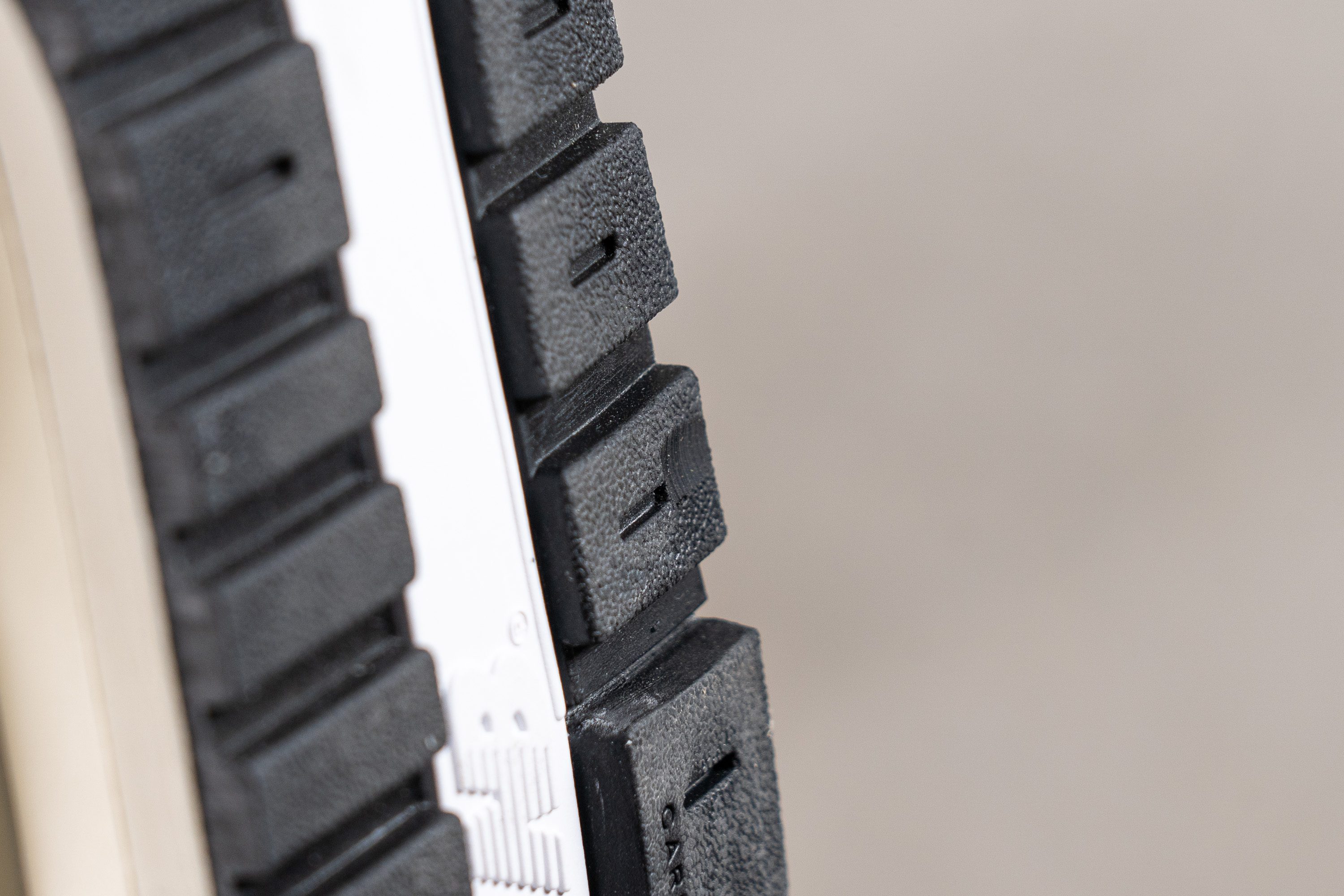
Our tread gauge indicated the dent had a depth of 0.9 mm, which is slightly lower than average.
| 996 | 0.9 mm |
| Average | 1.1 mm |
Outsole thickness
This New Balance's outsole is durable, but the brand opted to also add a big piece of this hard rubber compound.
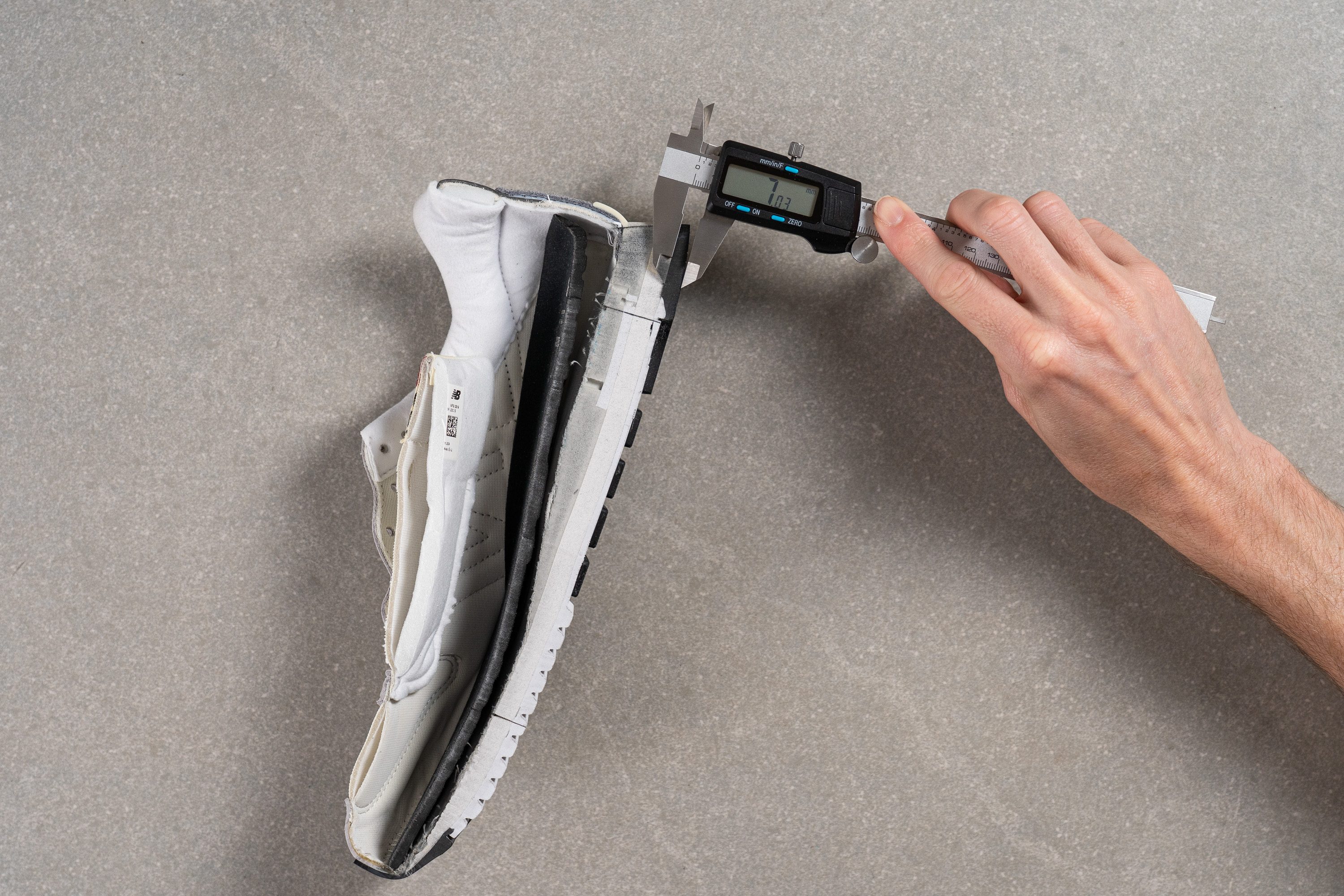
The 7.0 mm our calliper returned indicated this shoe's outsole is definitely long-lasting. So you don't need to worry about it leaving your side any time soon!
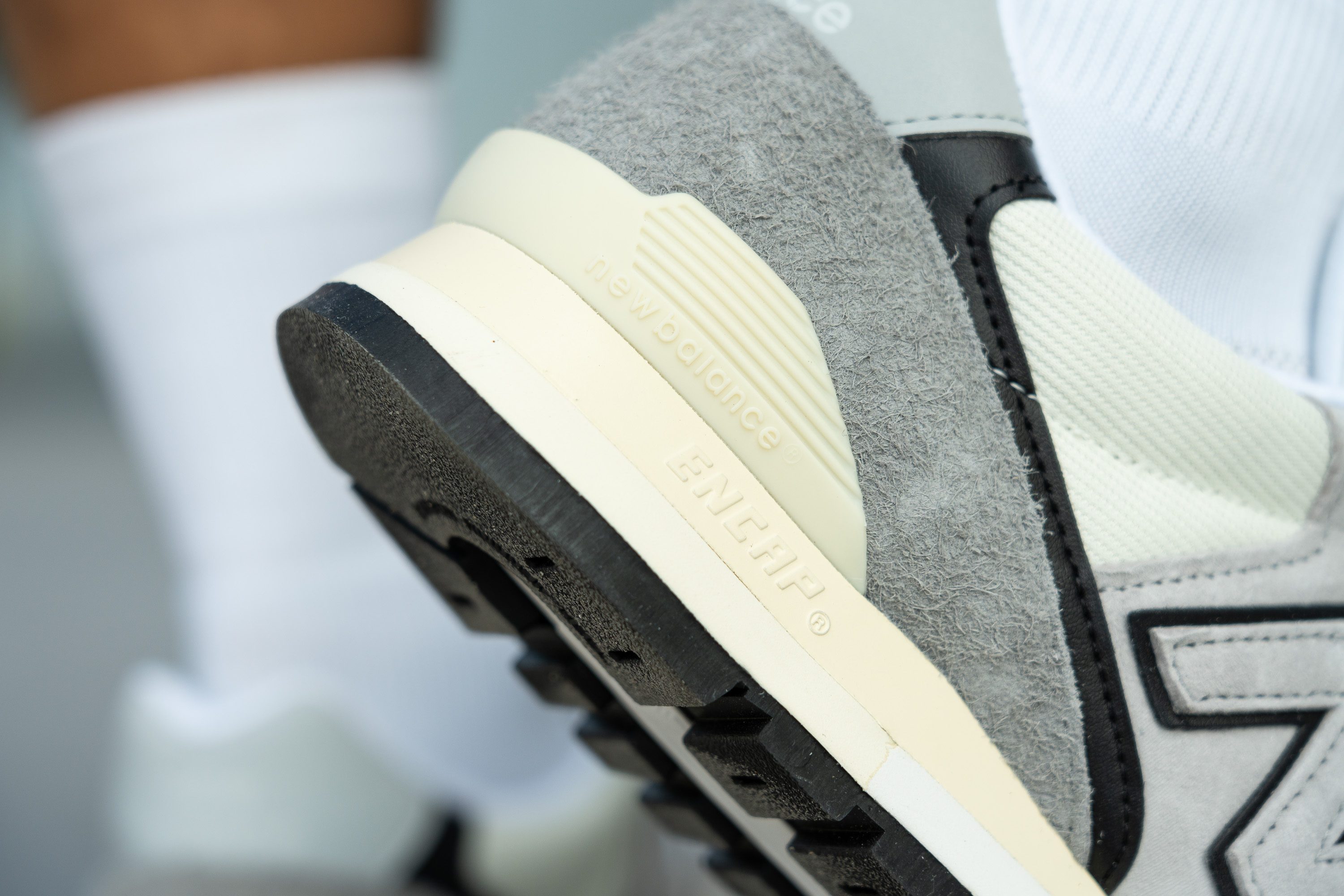
| 996 | 7.0 mm |
| Average | 5.3 mm |
Misc
Insole thickness
The queen of insoles has decided to give us just a standard one with this model.
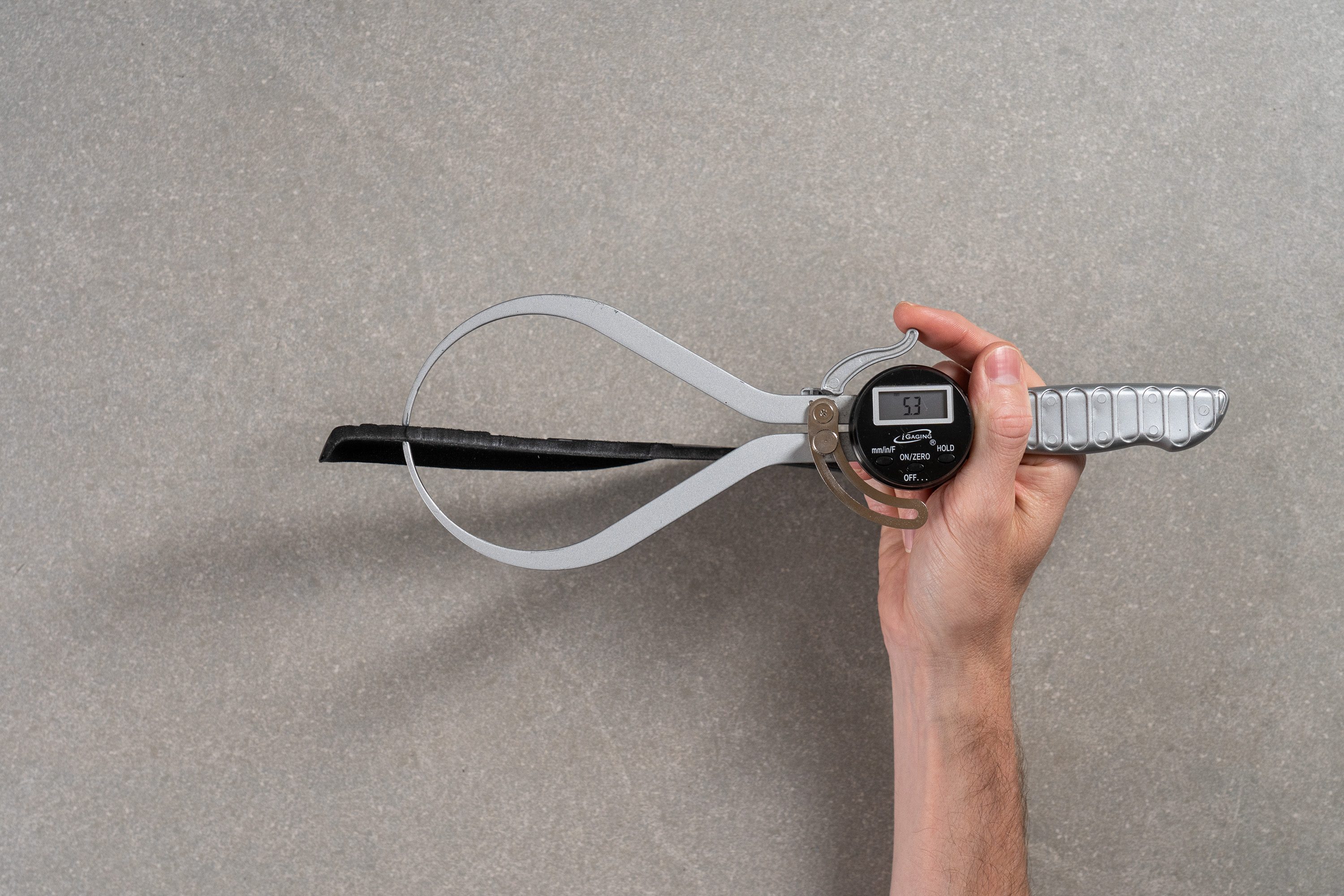
Our calliper returned 5.3 mm, which is just an average result. But hey, if you don't like it, you can always change it!
| 996 | 5.3 mm |
| Average | 5.1 mm |
Removable insole
This shoe features a removable insole, which is wonderful news!
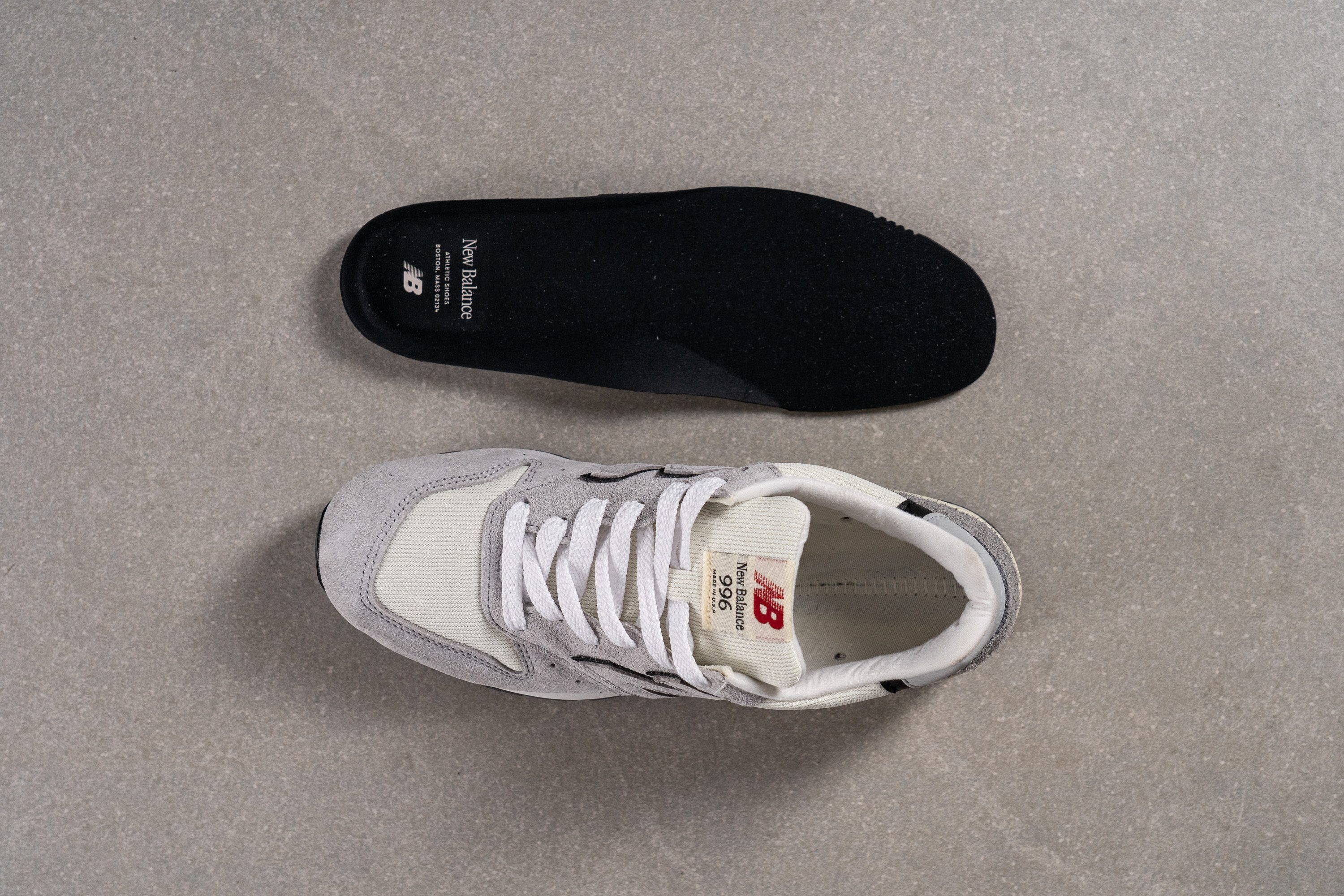
If you need to use your own orthotics or if you're just looking for that extra cushioning or support underfoot, you can always go for a different insole.
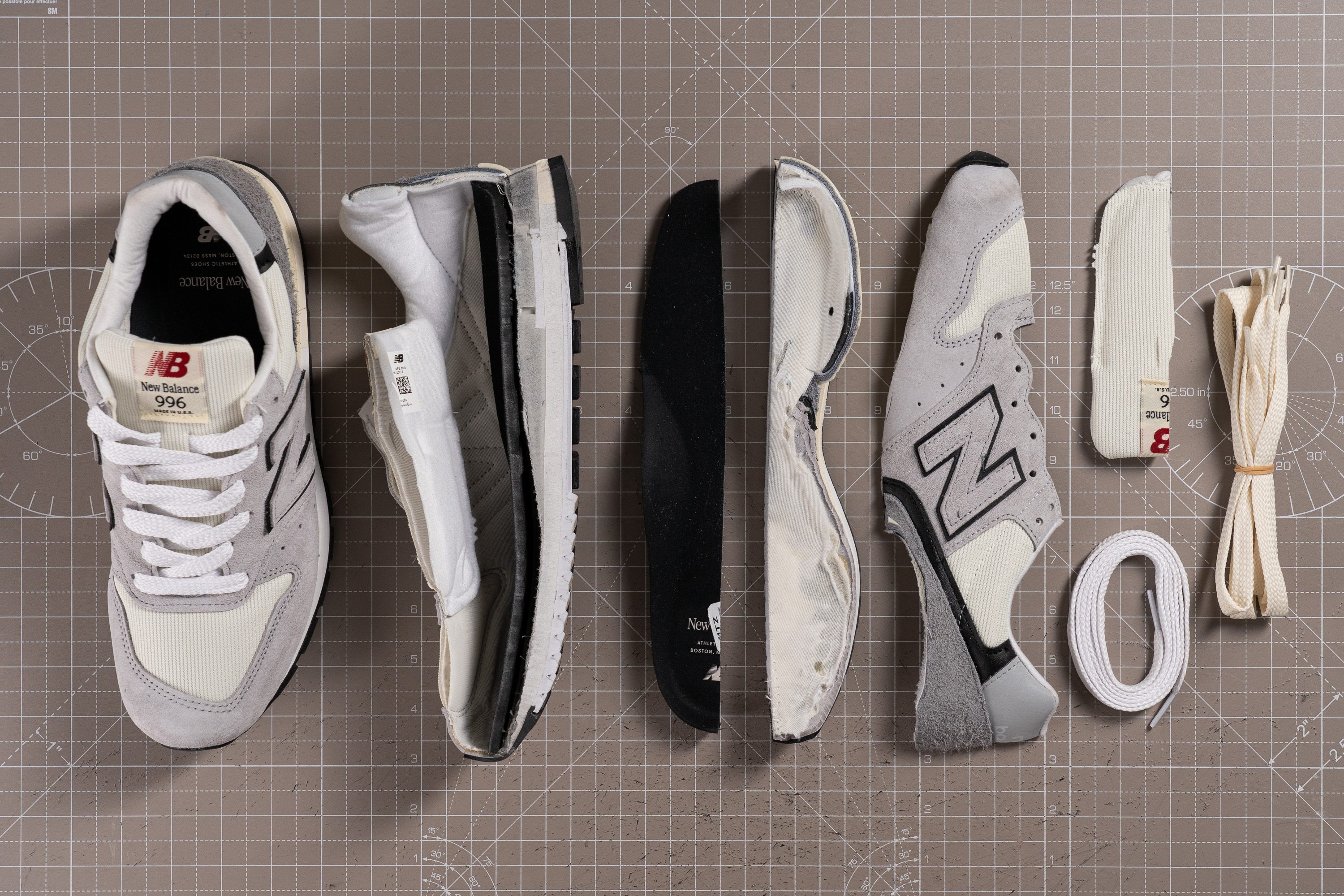
Additionally, this shoe's opening is pretty big, so fitting the insole in shouldn't be troublesome at all.
| 996 | Yes |
Reflective elements
Look at how cool the 996's heel is! Who needs a heel tab with such an awesome detail (and a wide opening, of course).
| 996 | Yes |
Tongue padding
We loved the padded tongue of the New Balance 996!
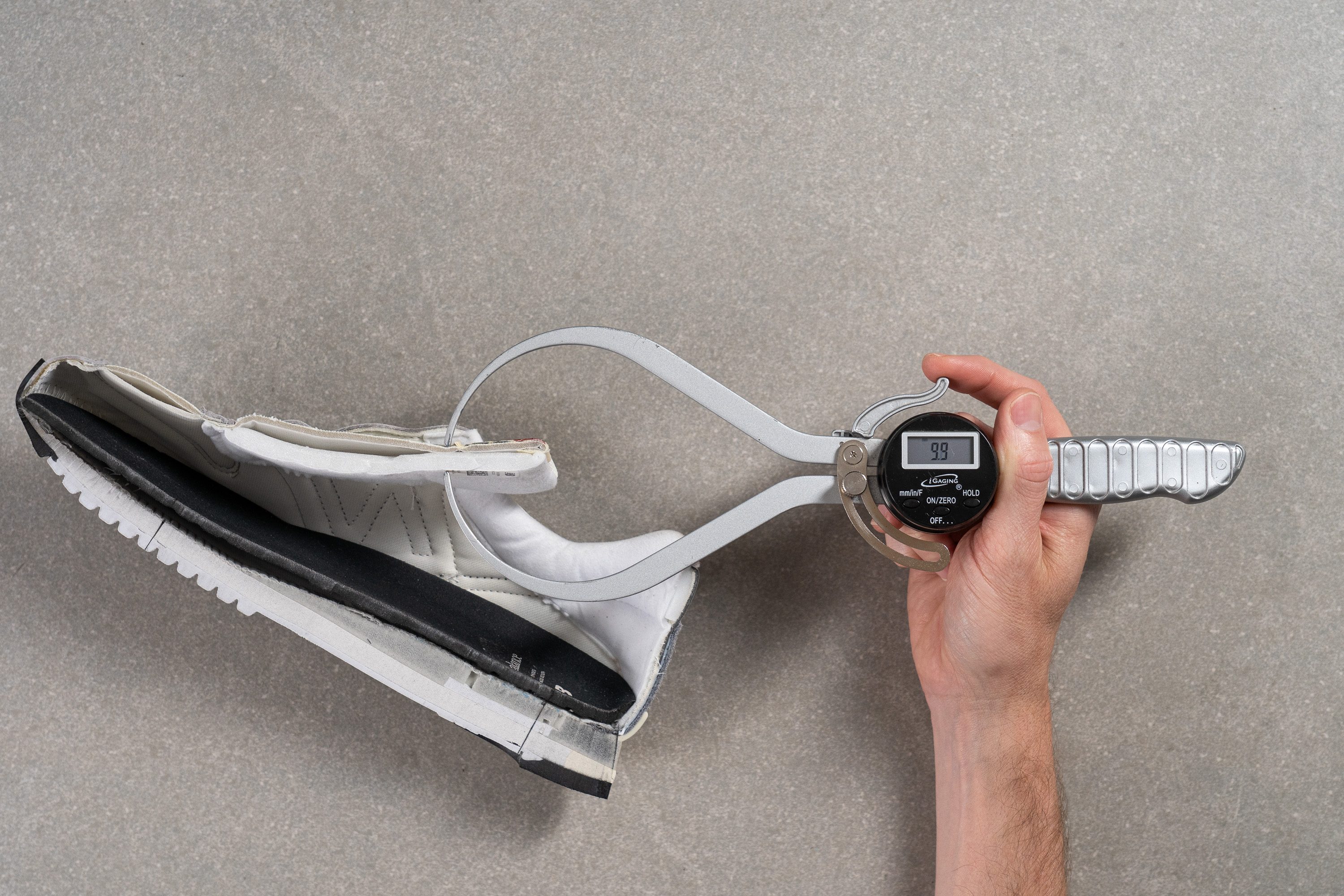
Its wonderful 9.9 mm made our instep stay comfortable even if we used that extra top eyelet to tighten up the shoe!
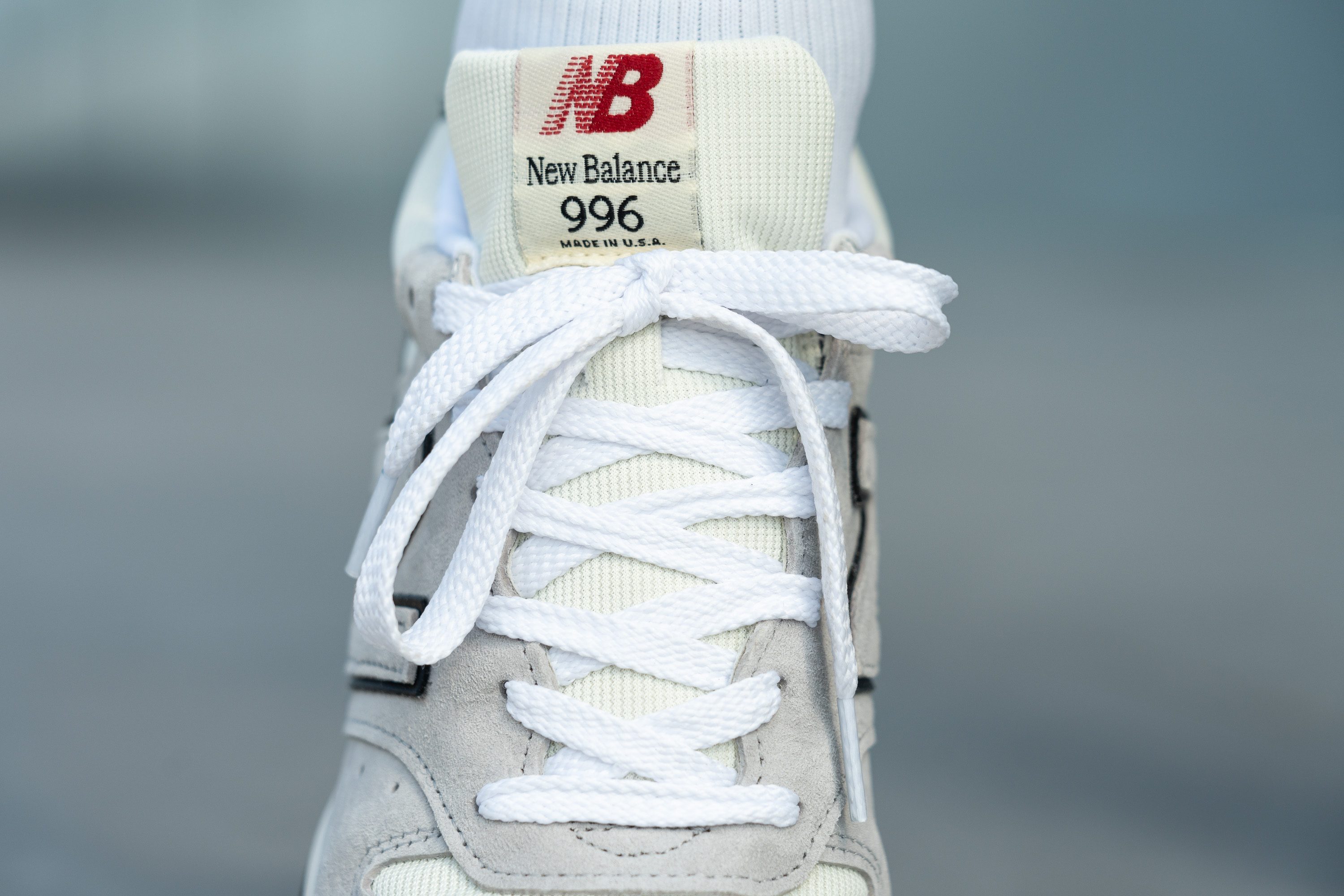
| 996 | 9.9 mm |
| Average | 9.6 mm |
Heel tab
This shoe doesn't have a heel tab, but wait until you get to our reflective elements section and find out why!
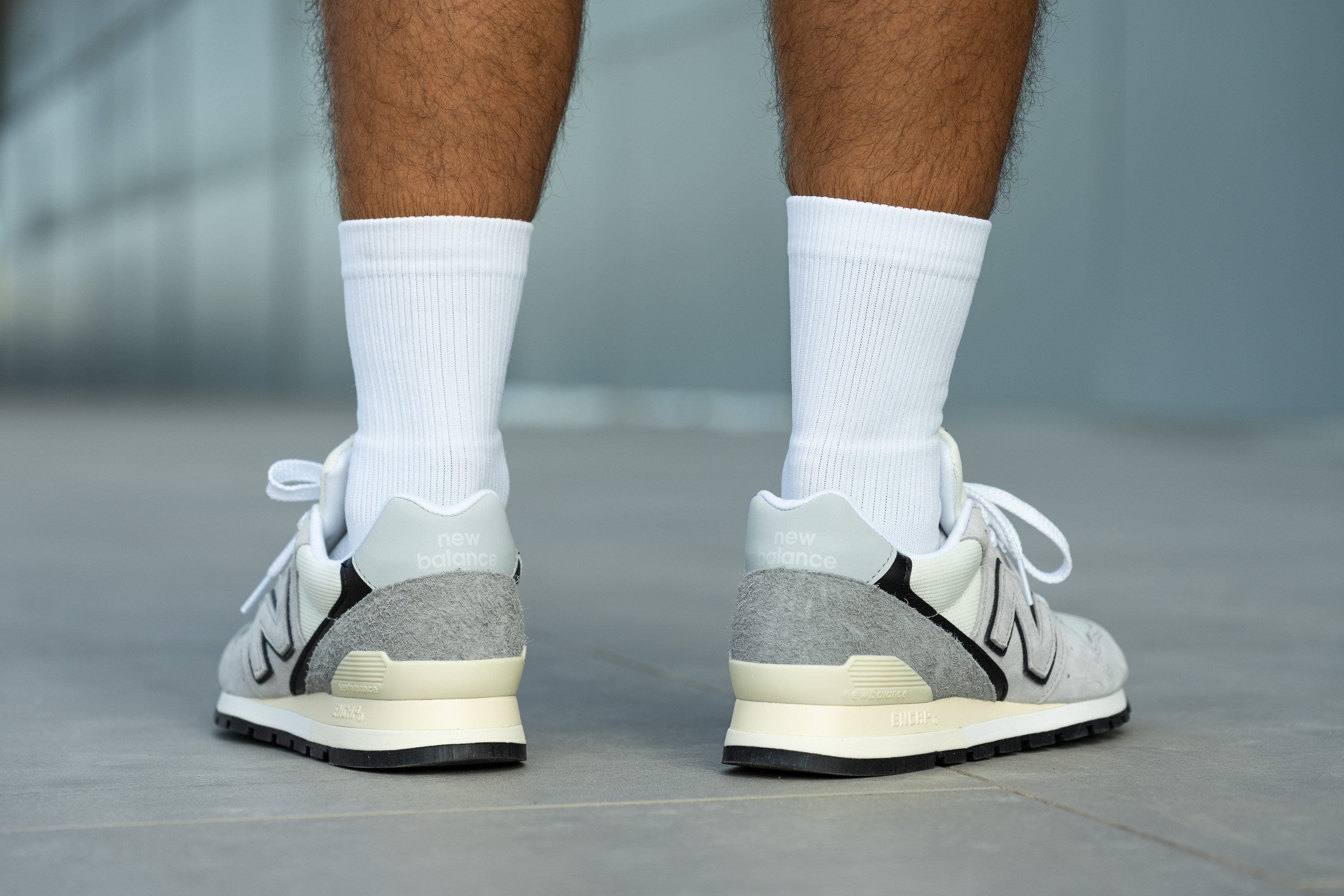
| 996 | None |

